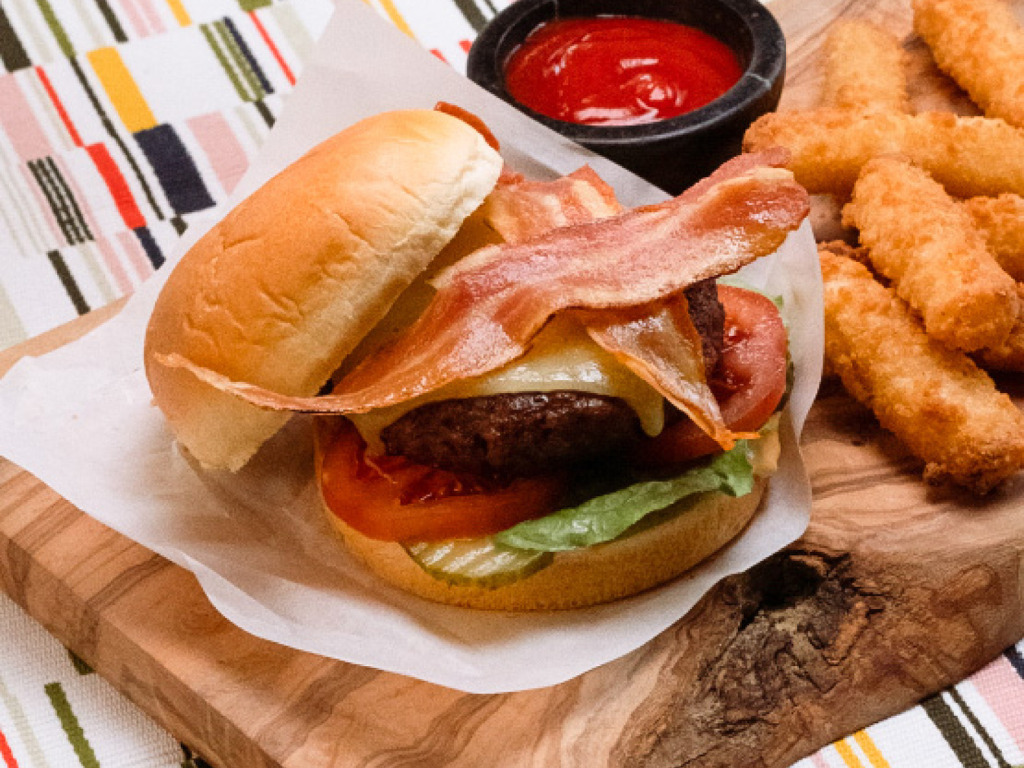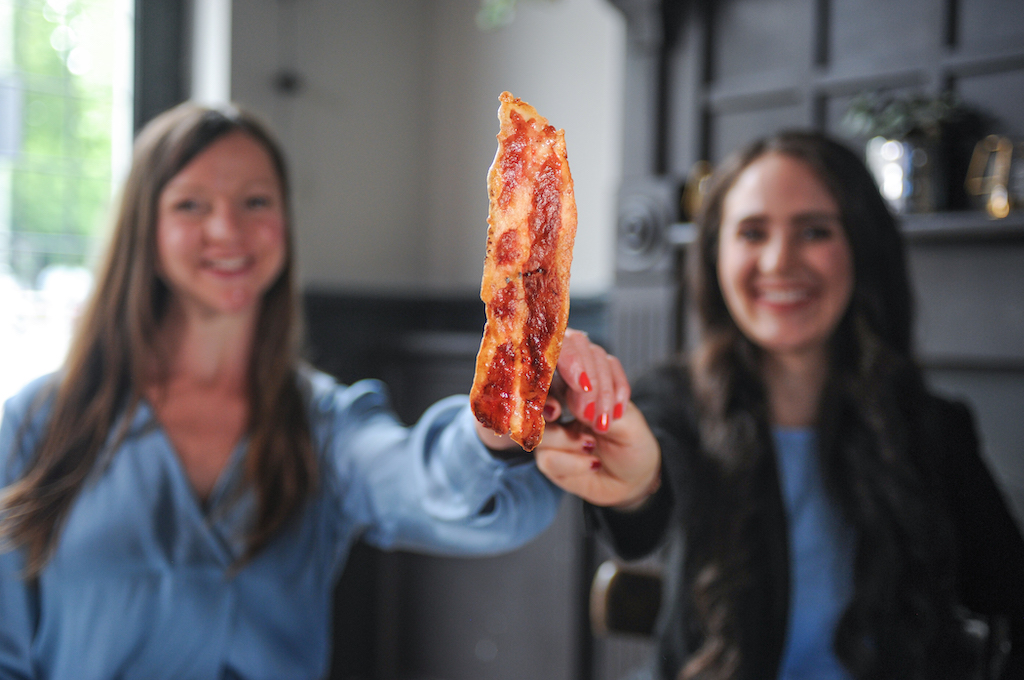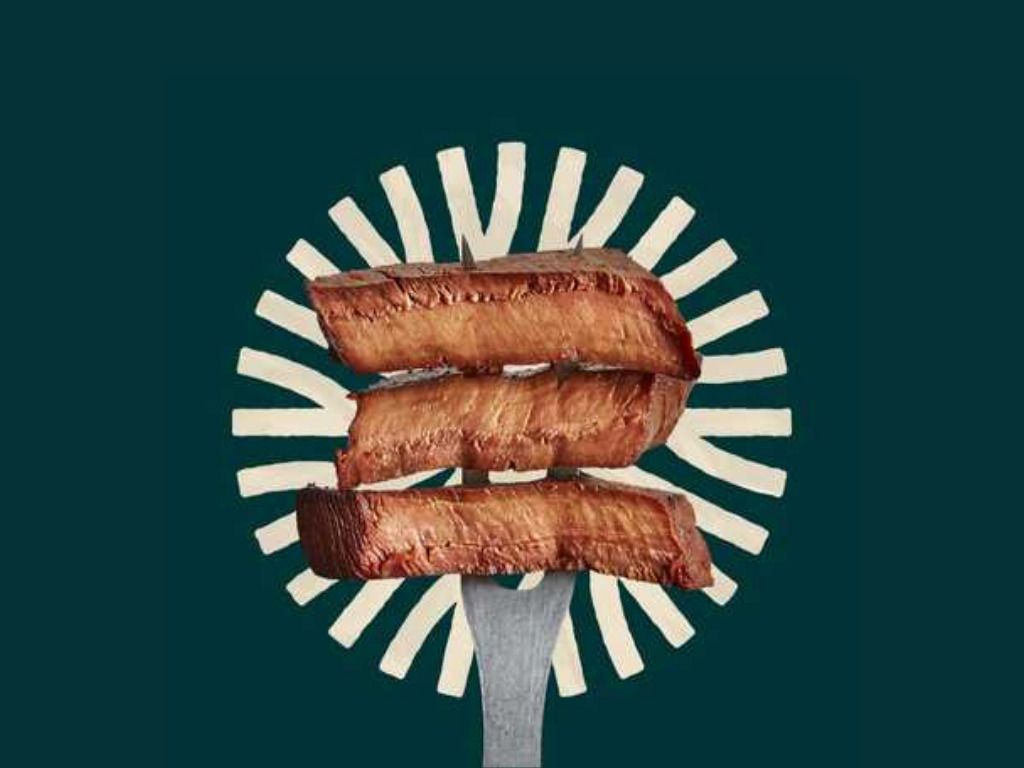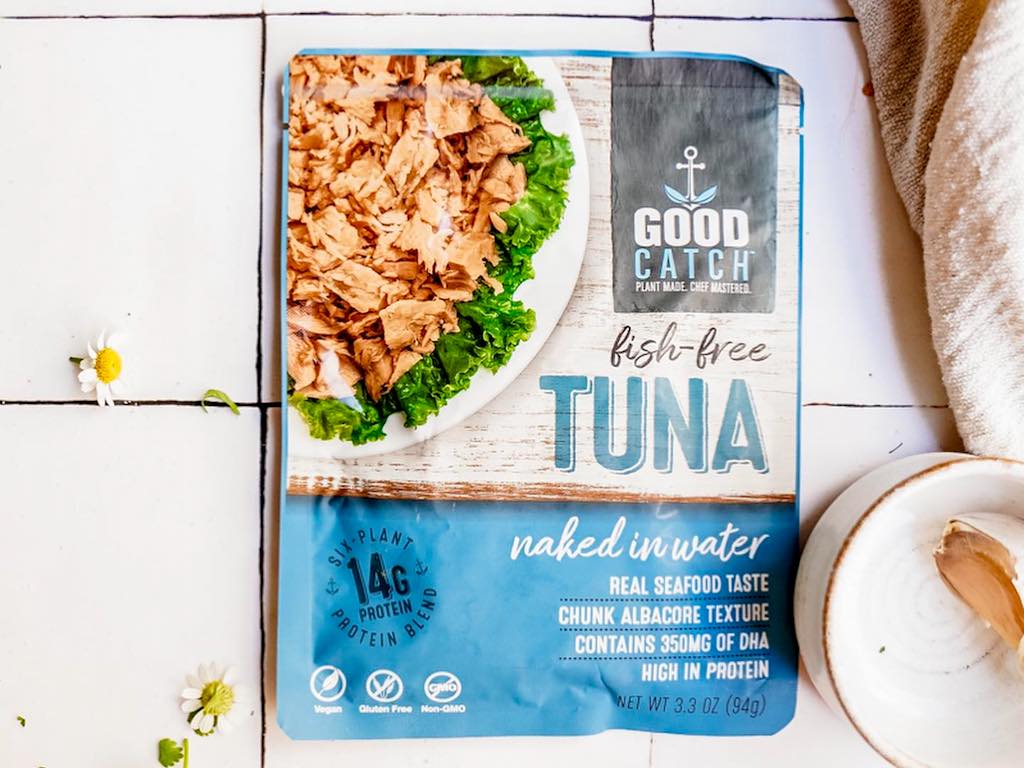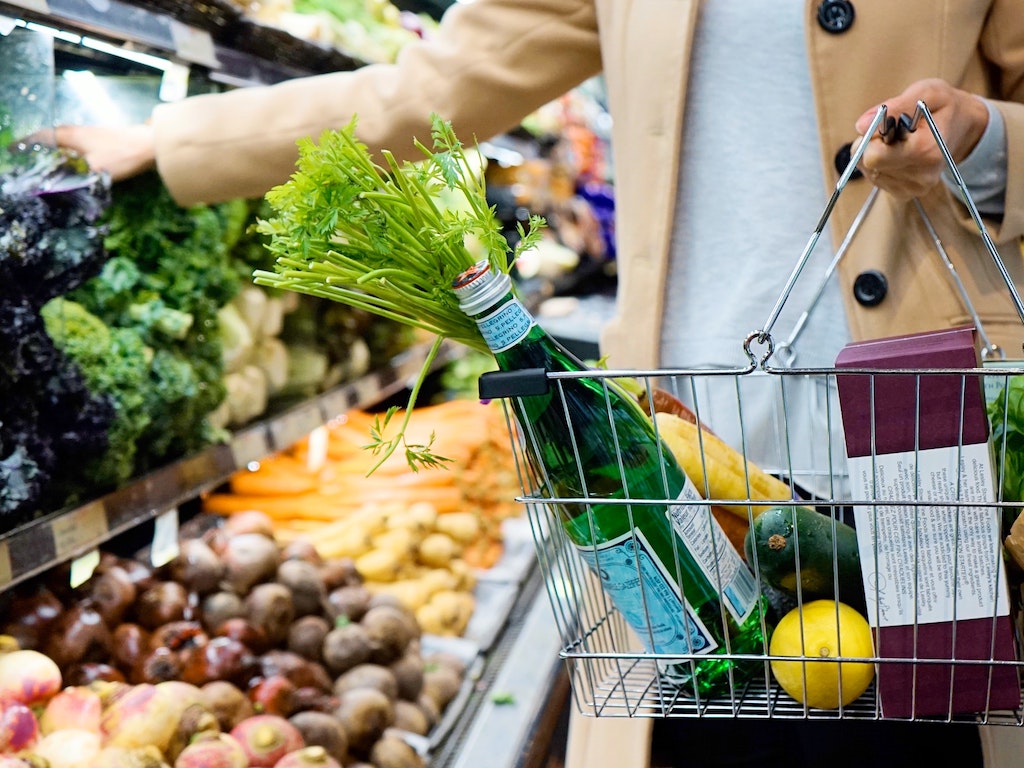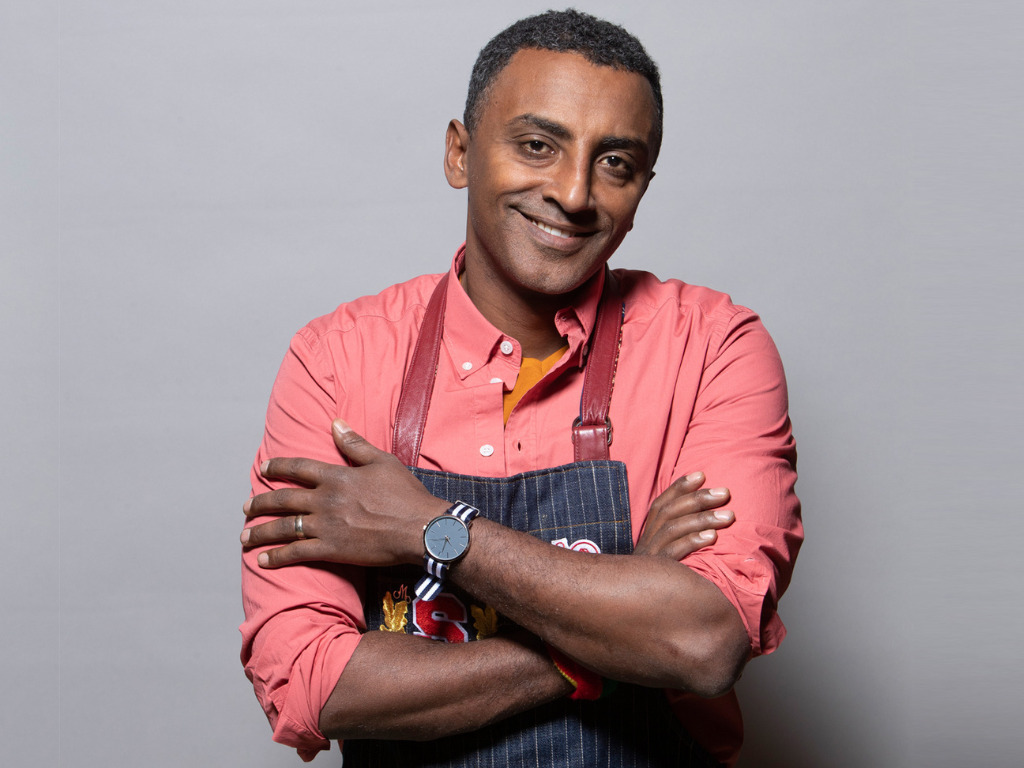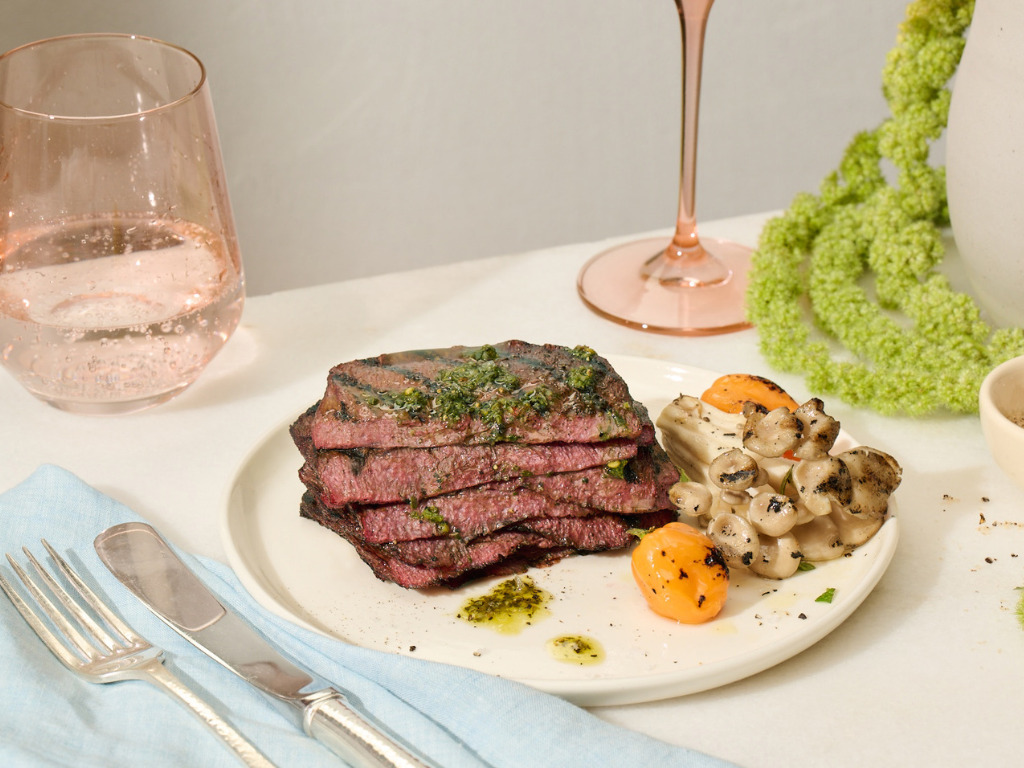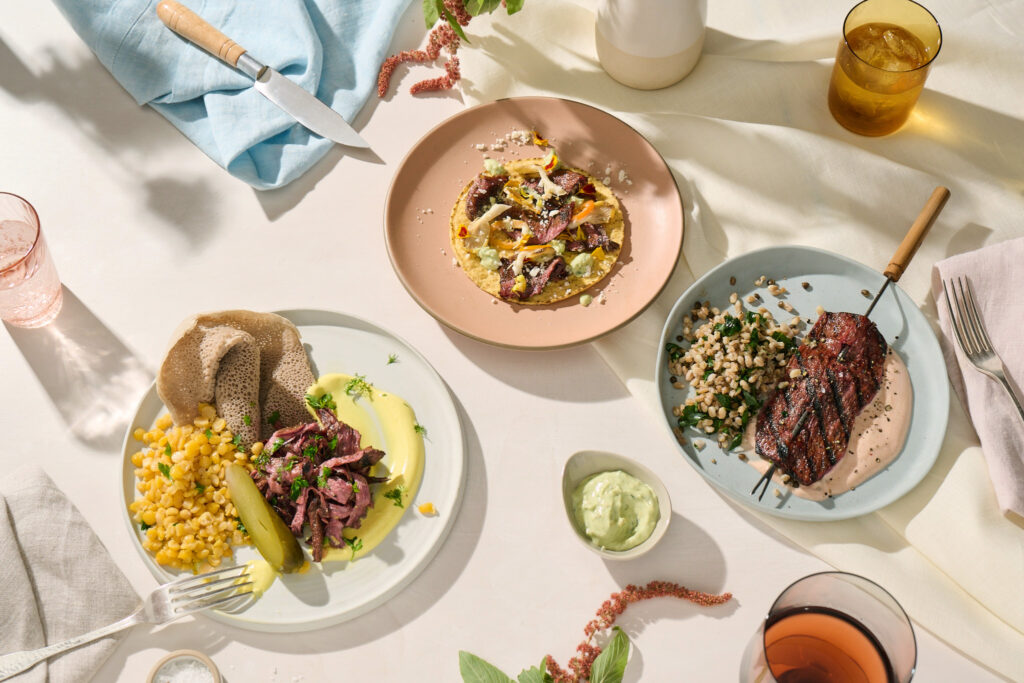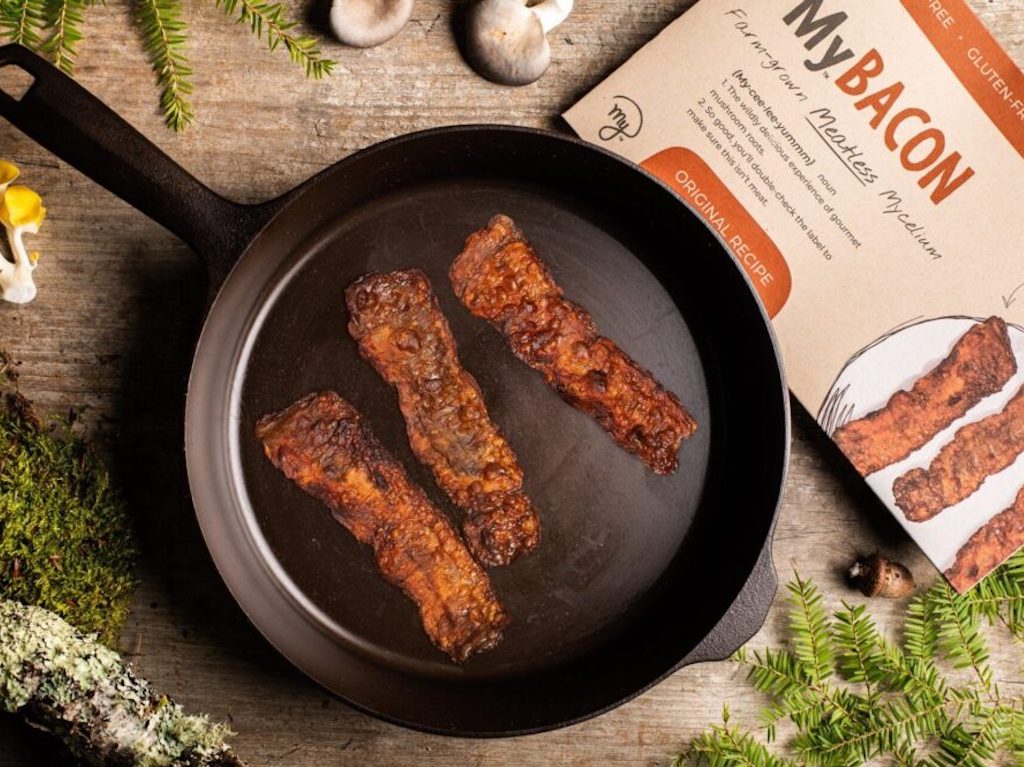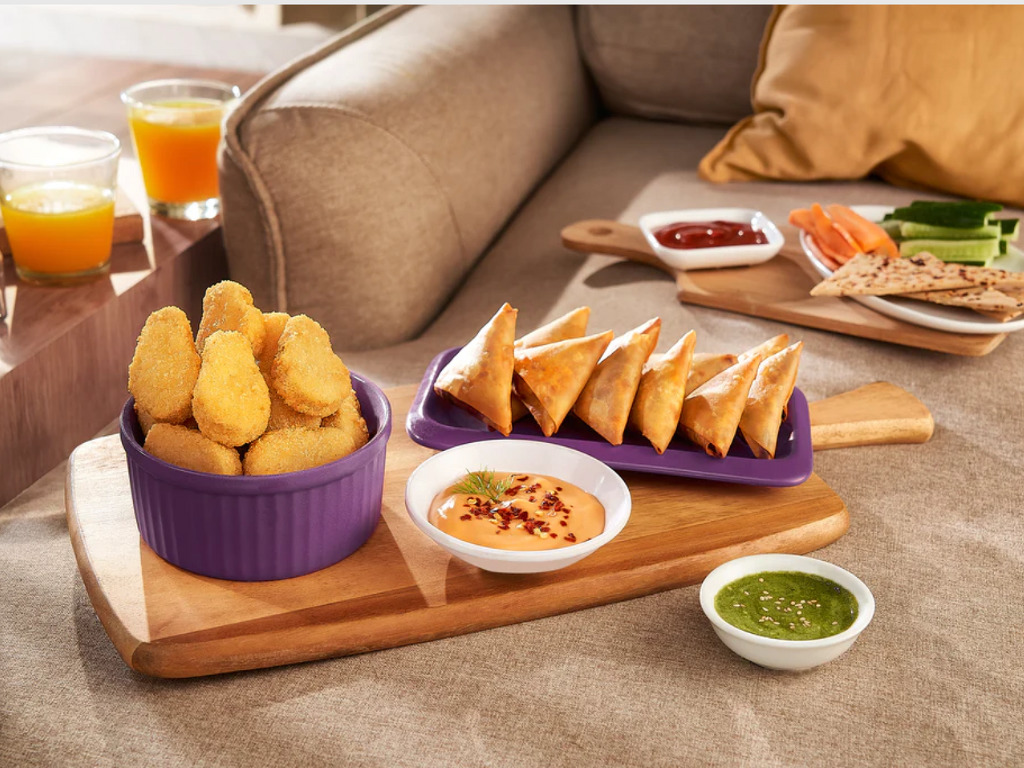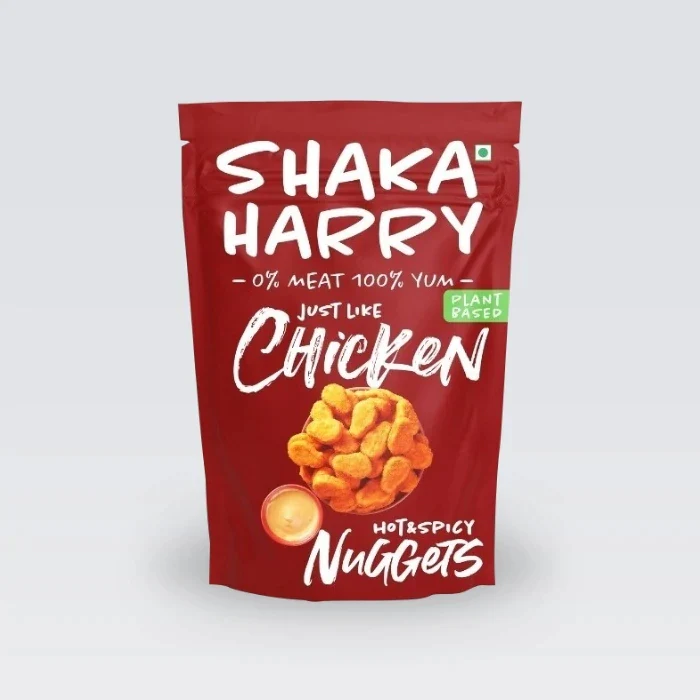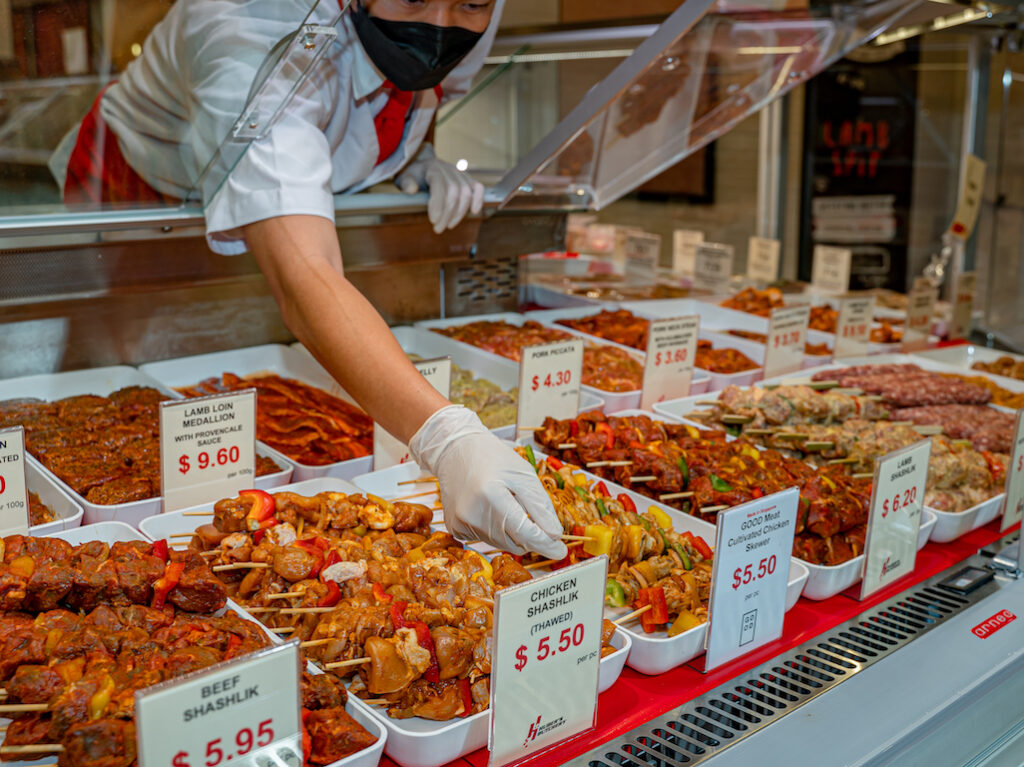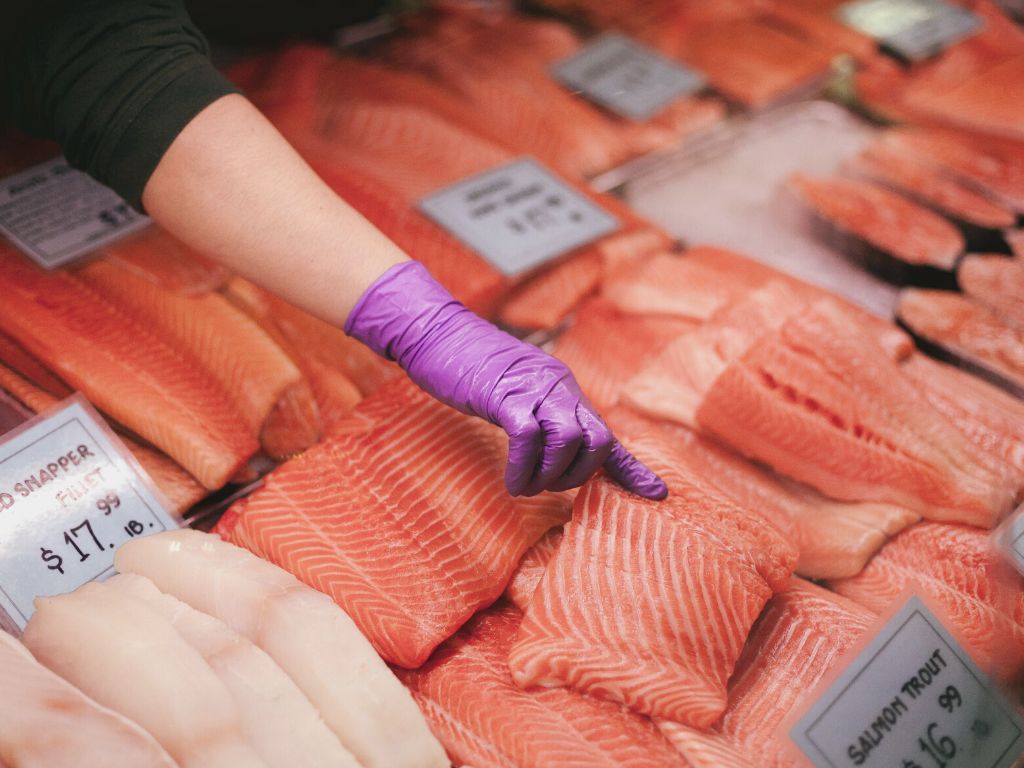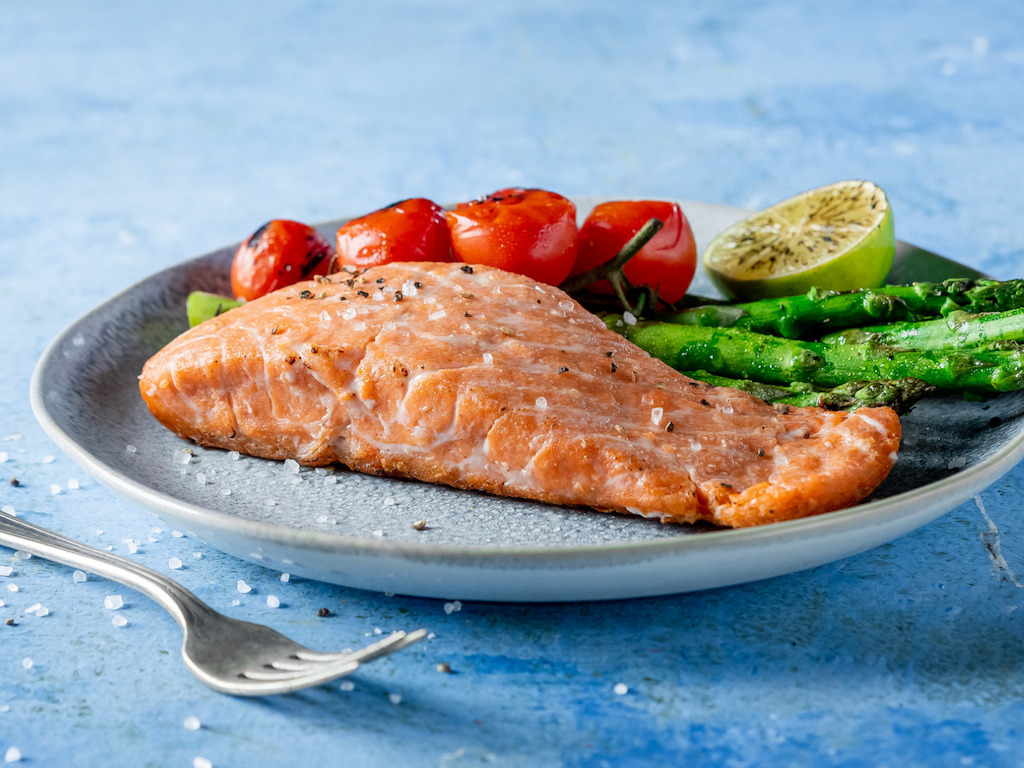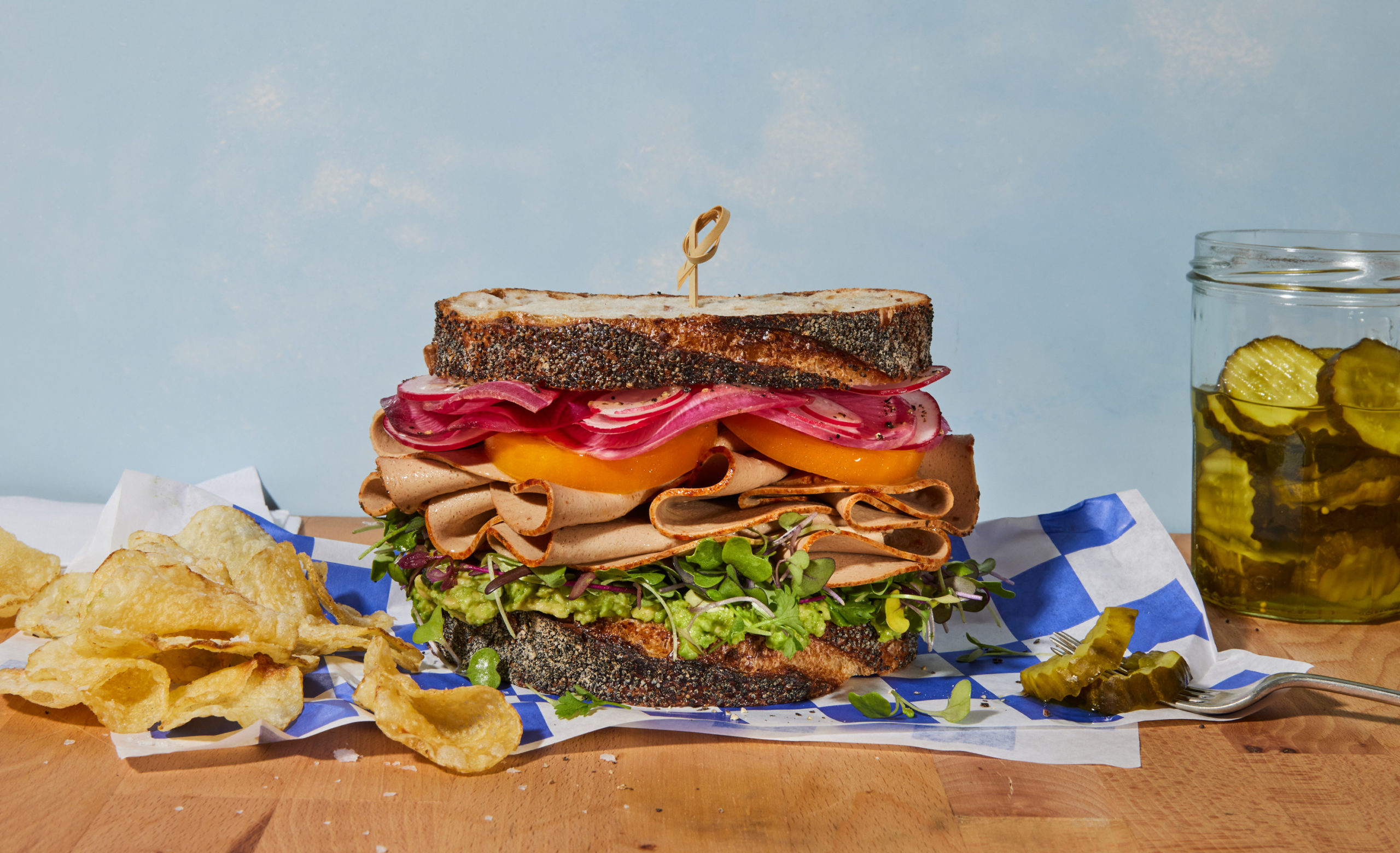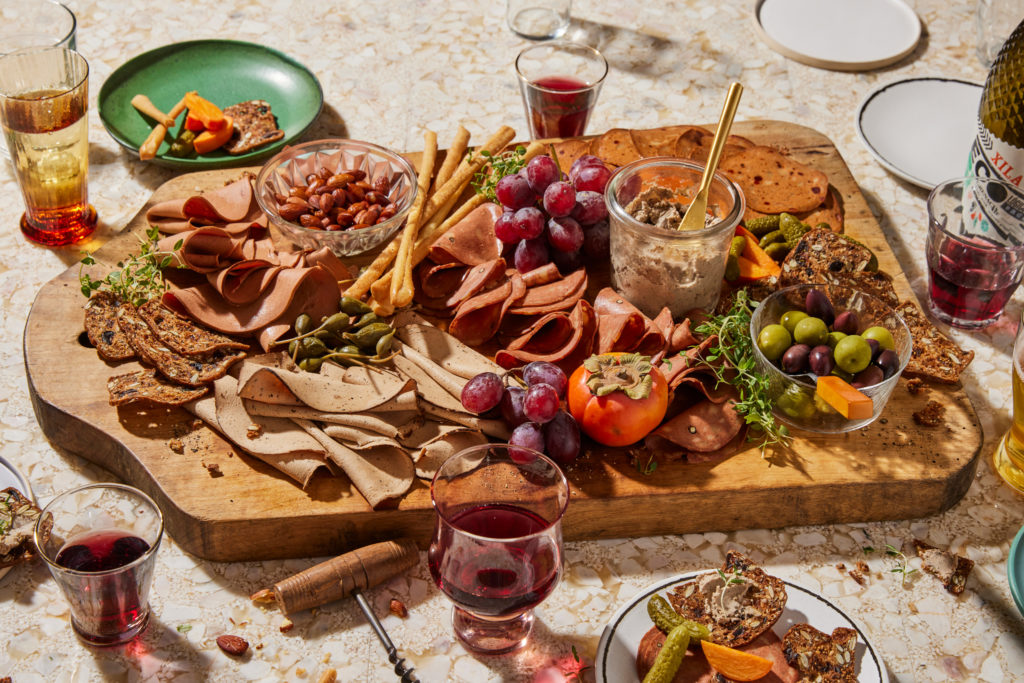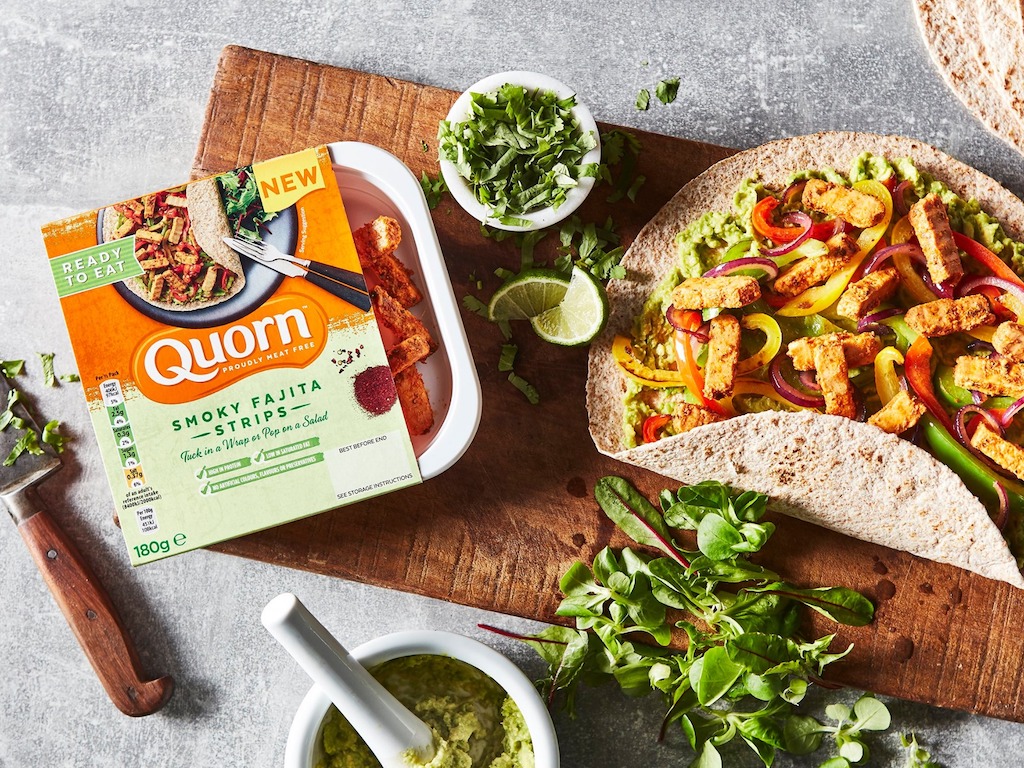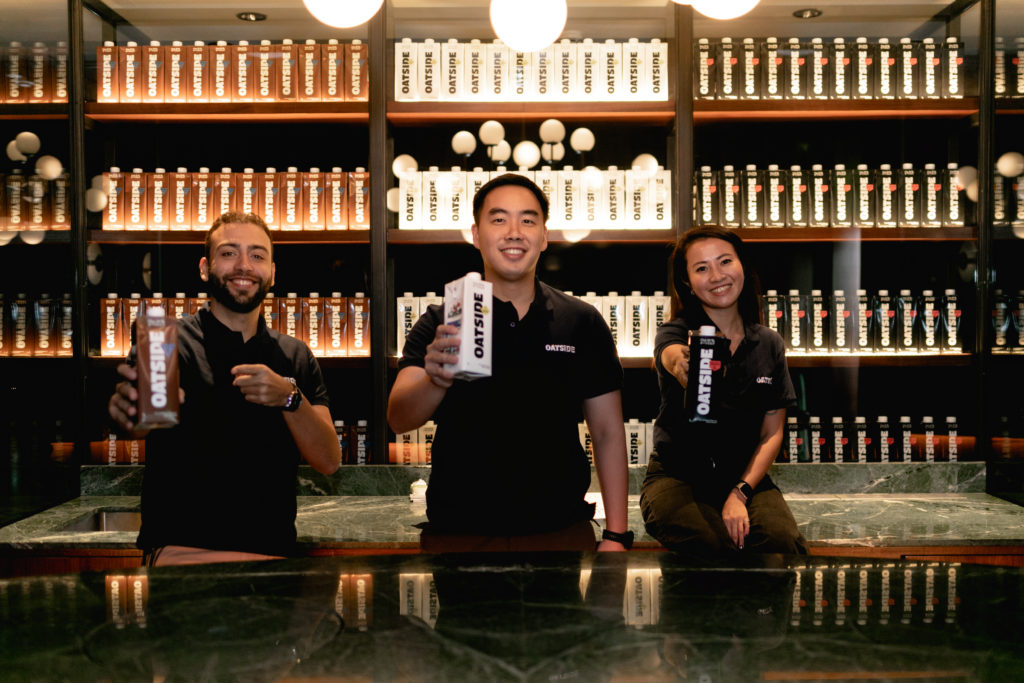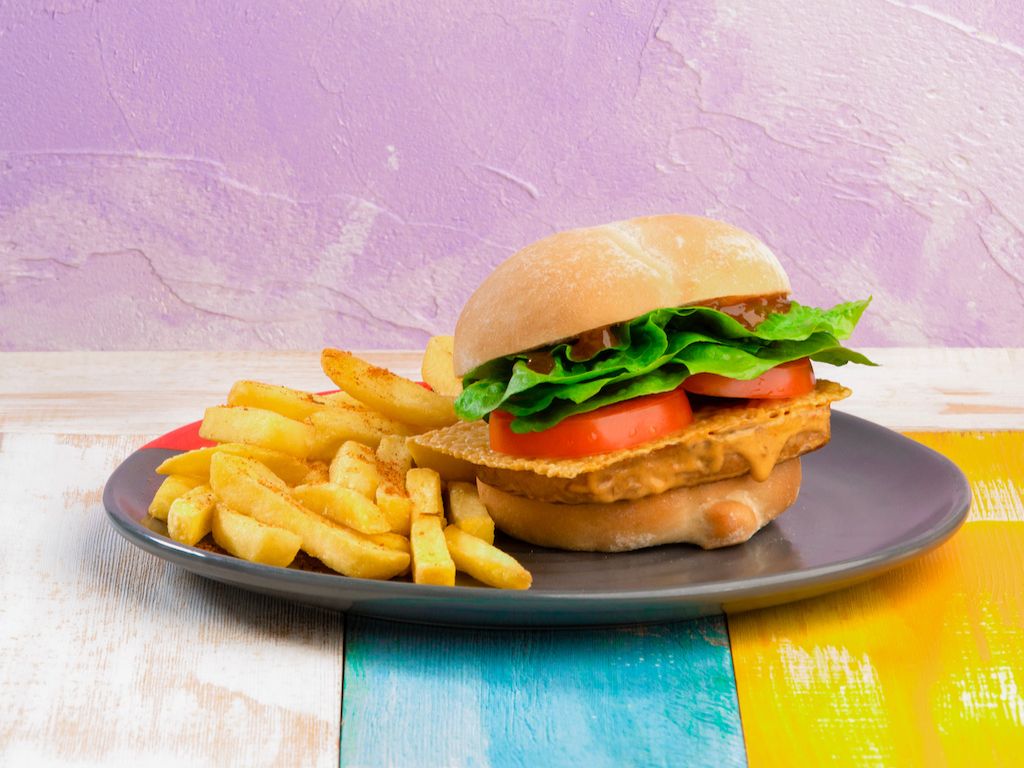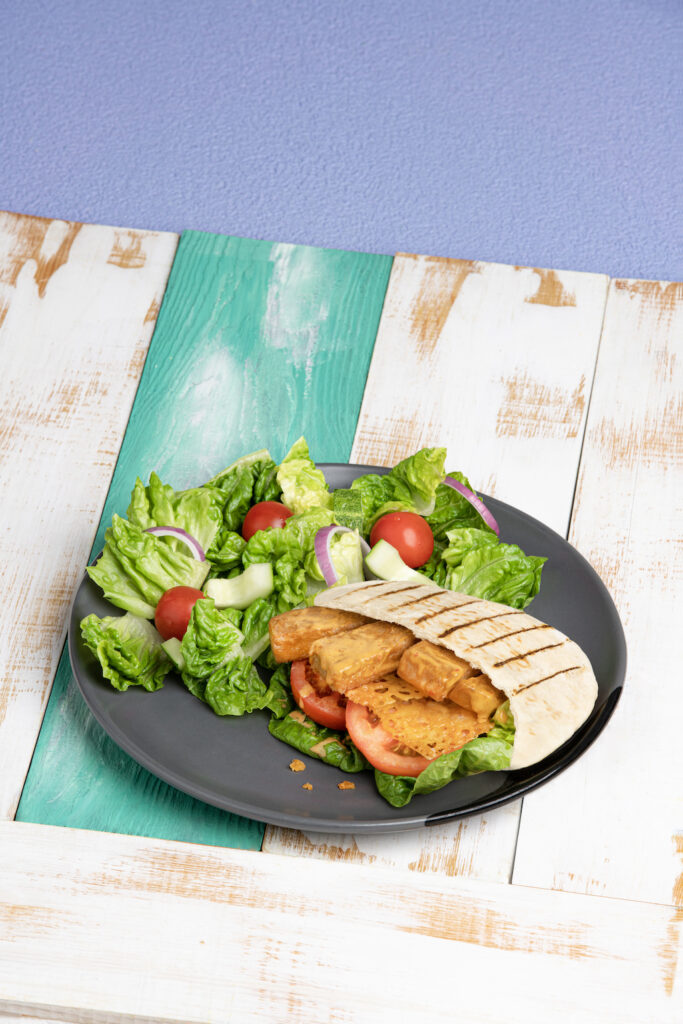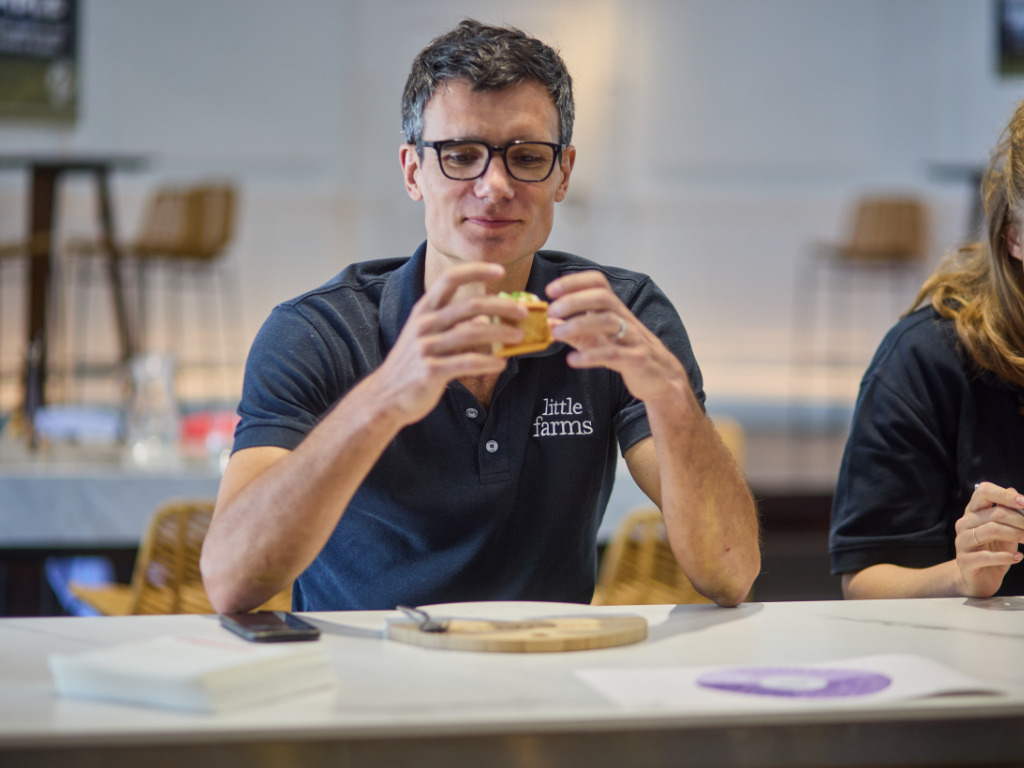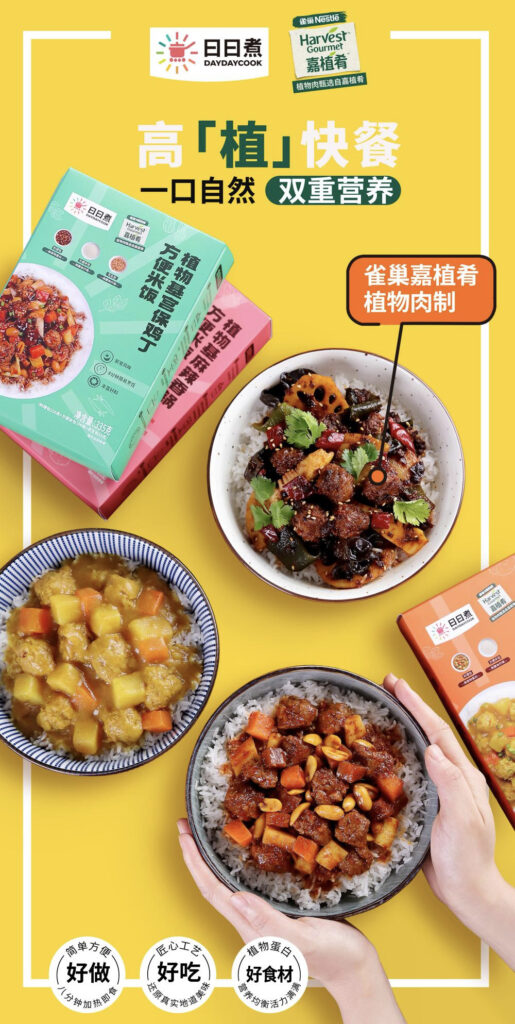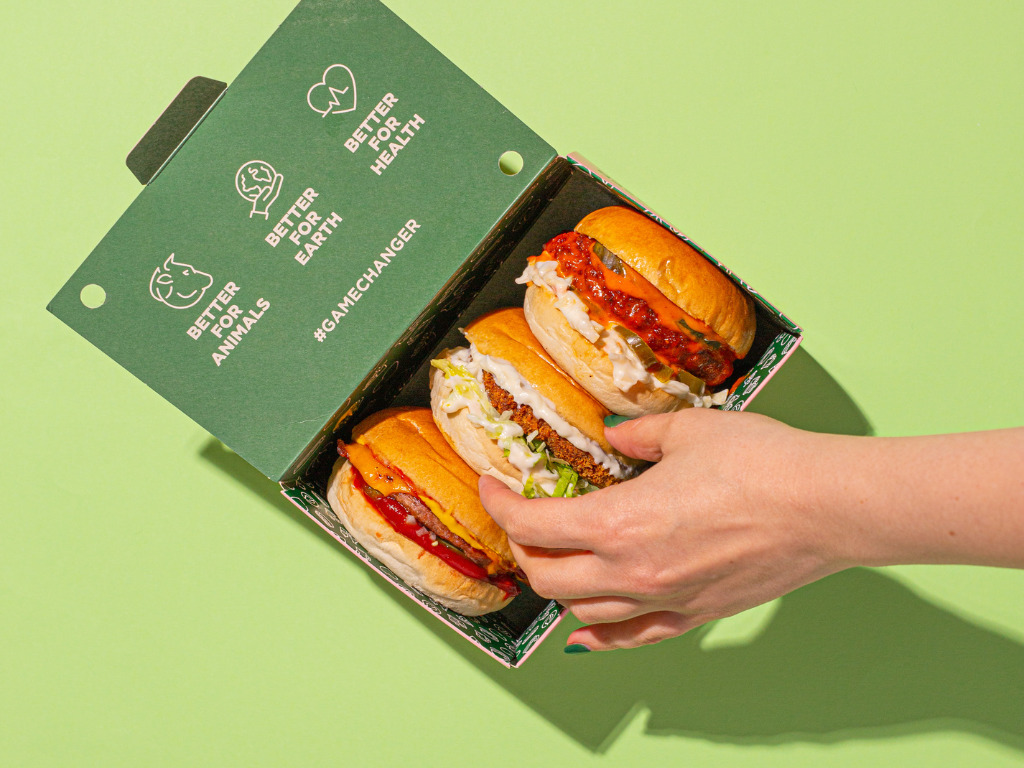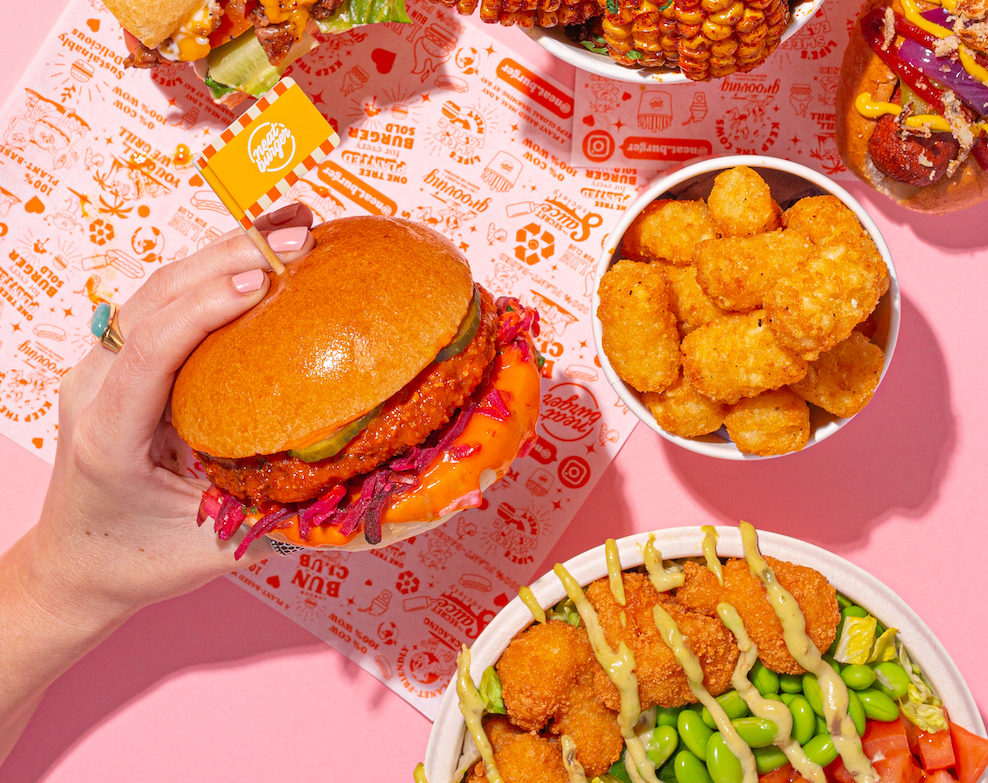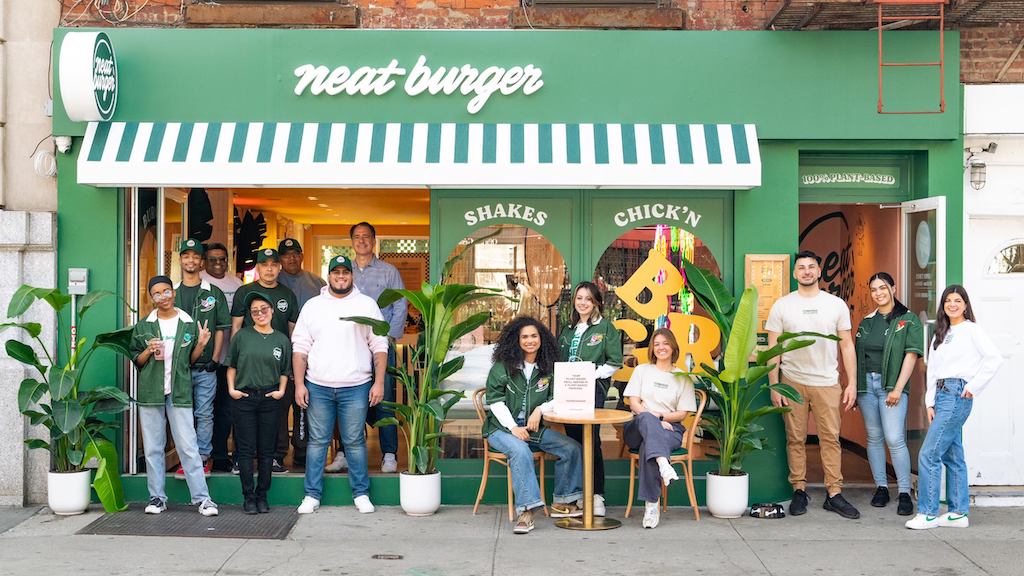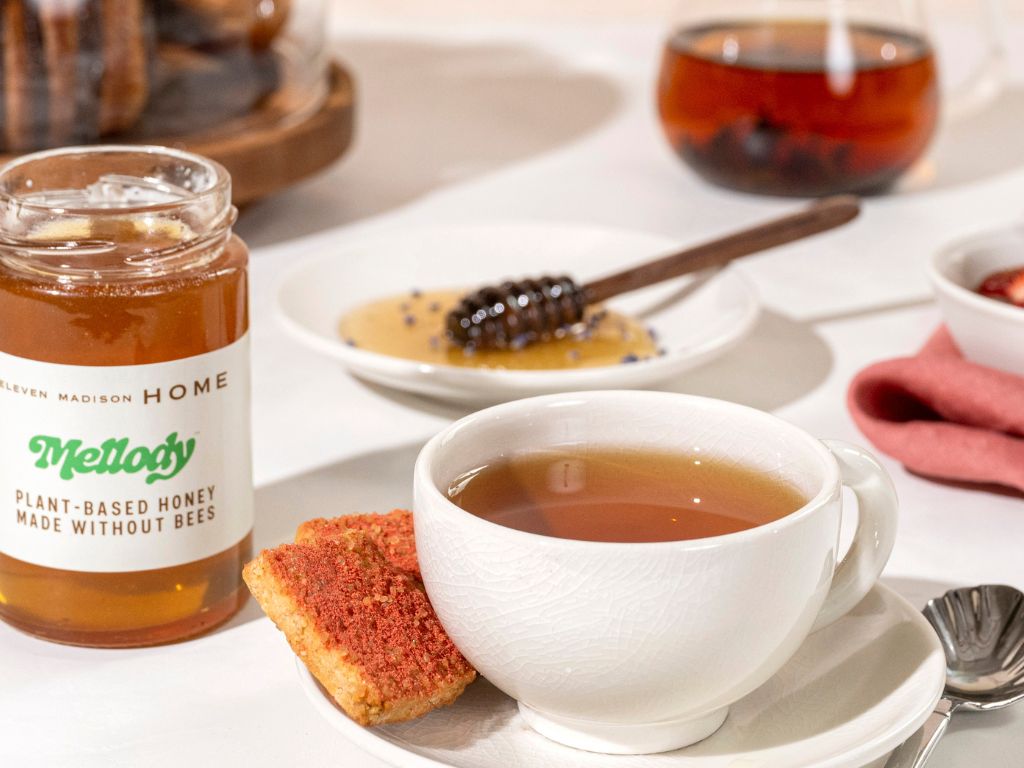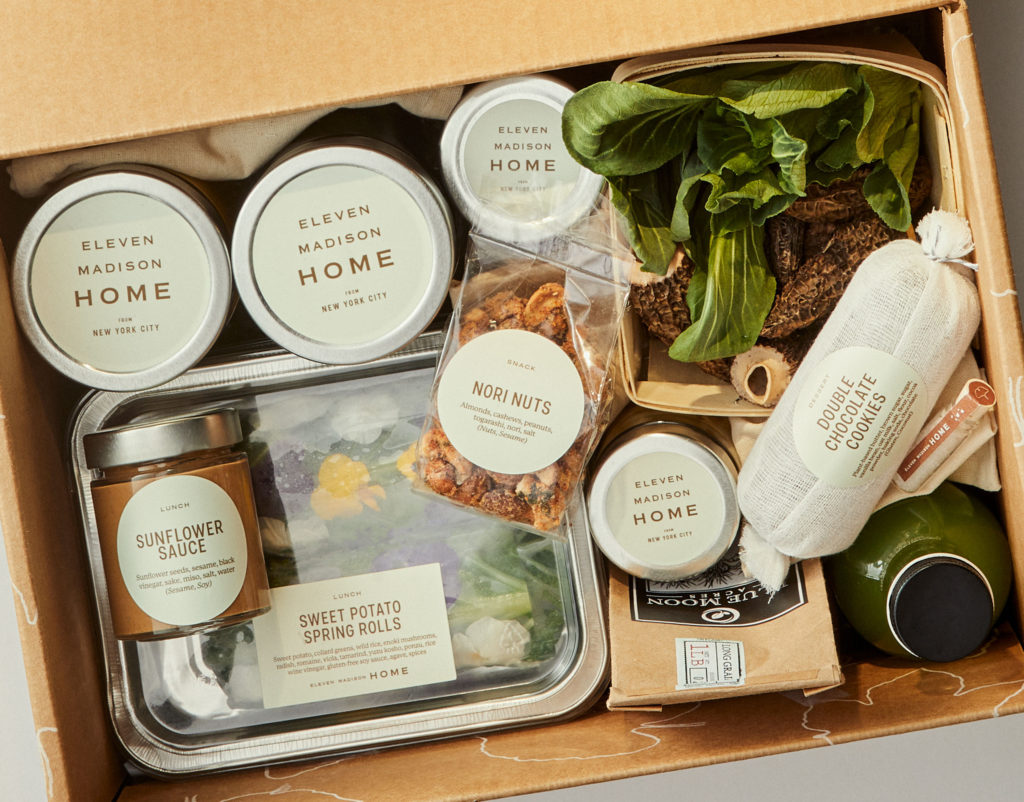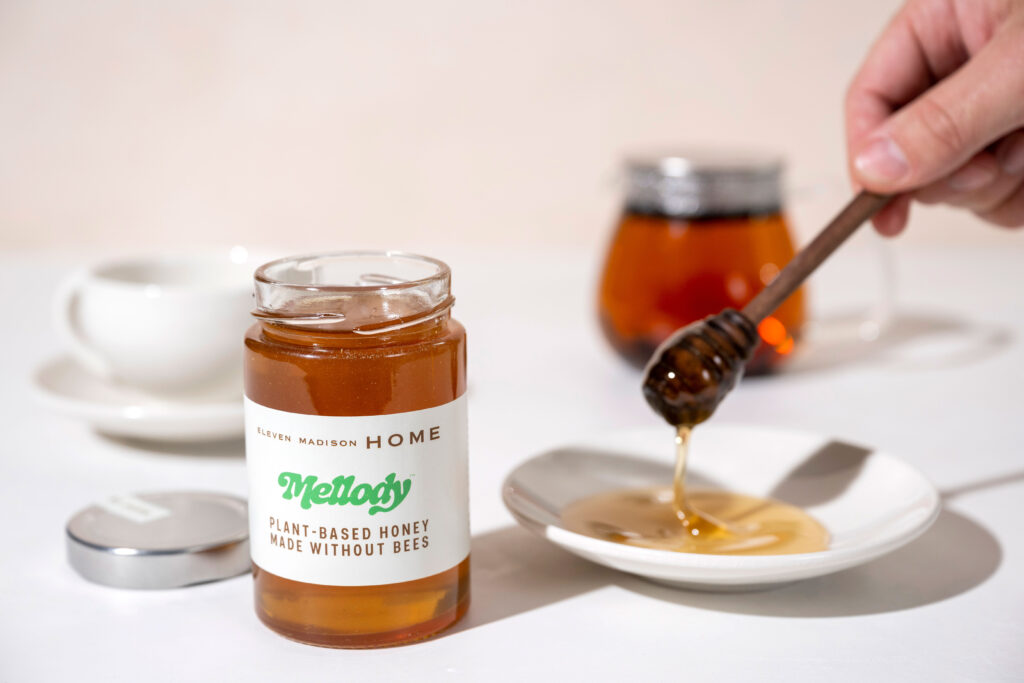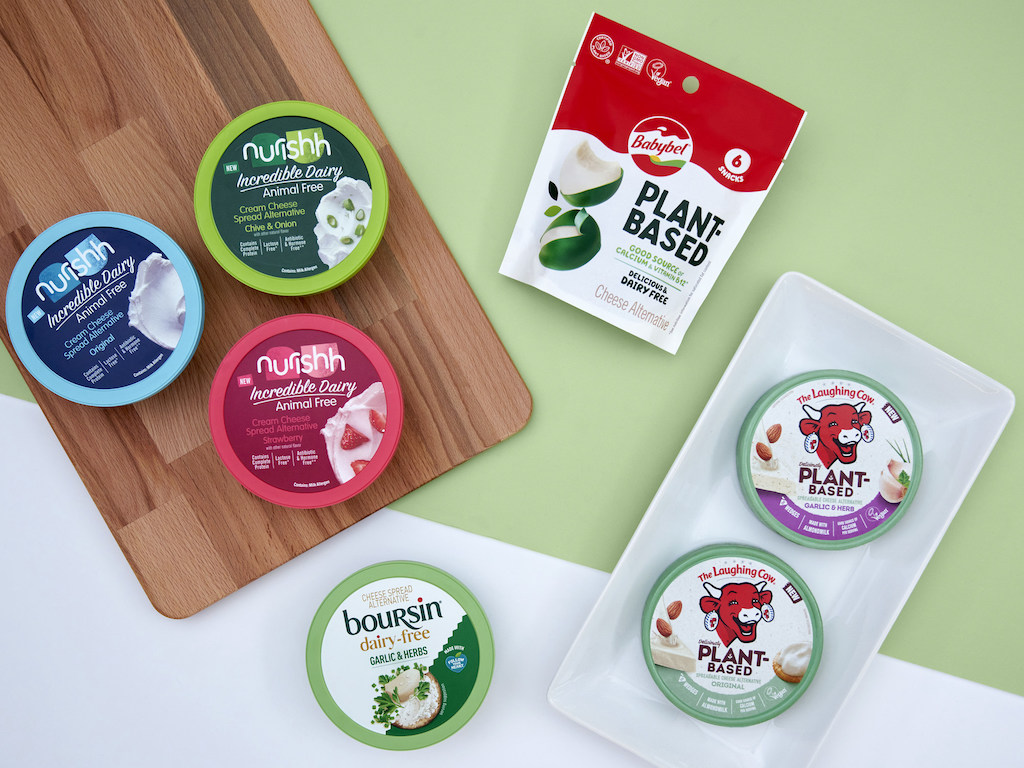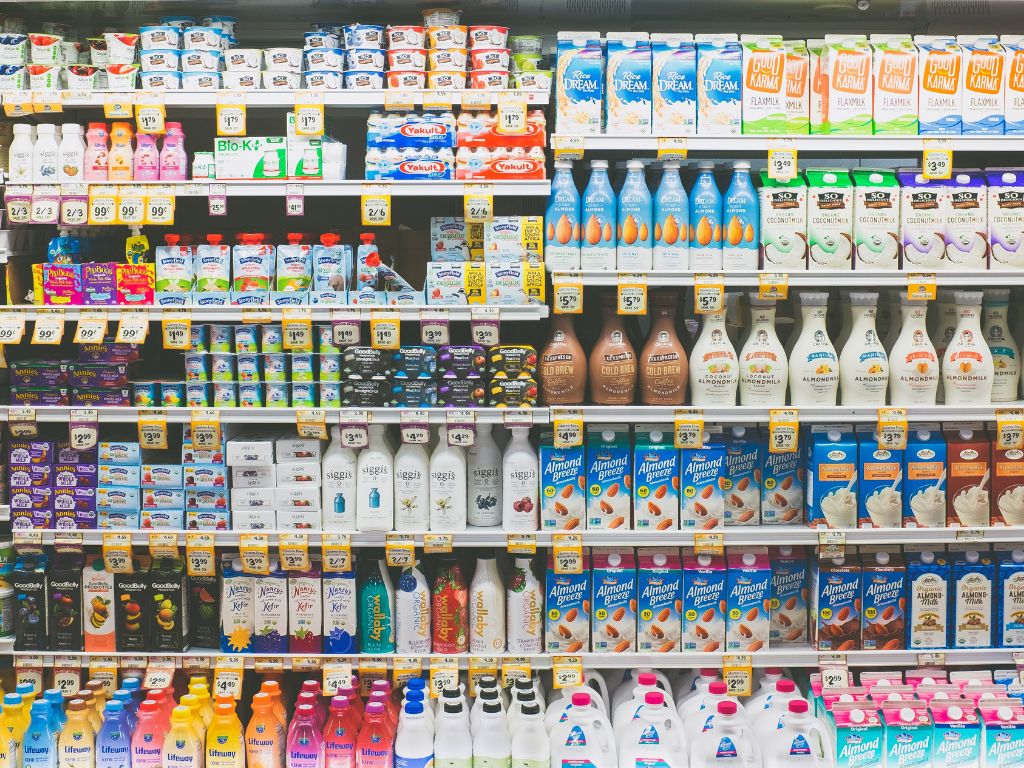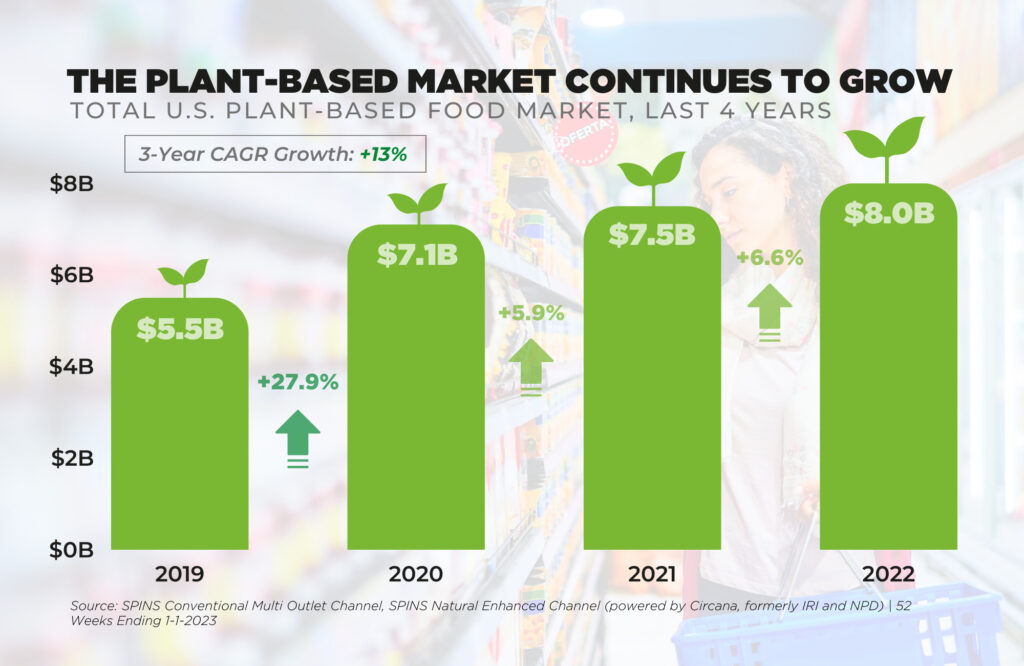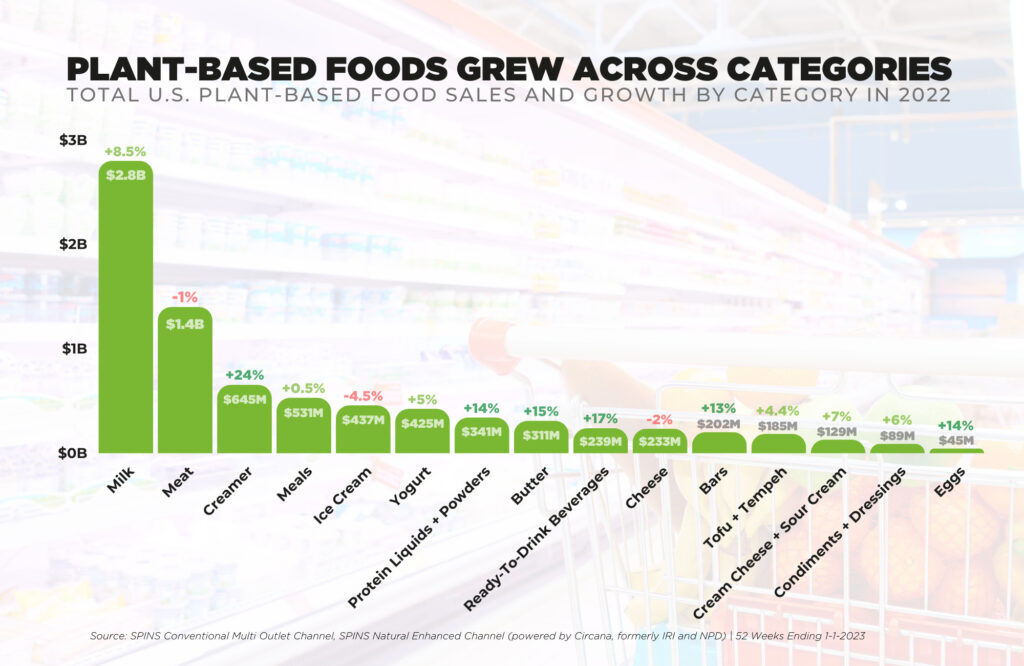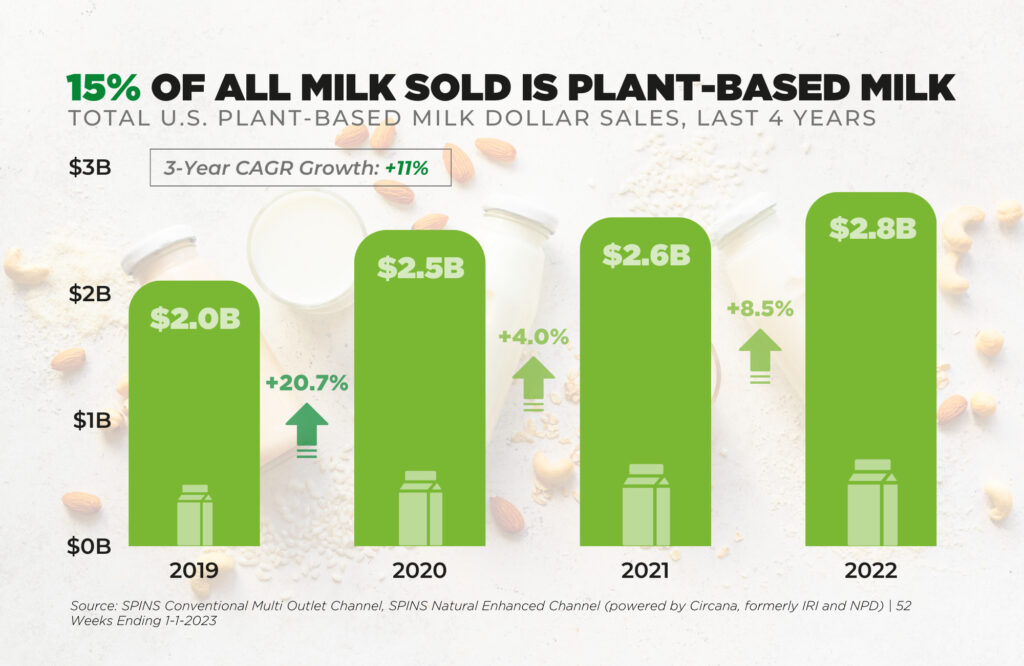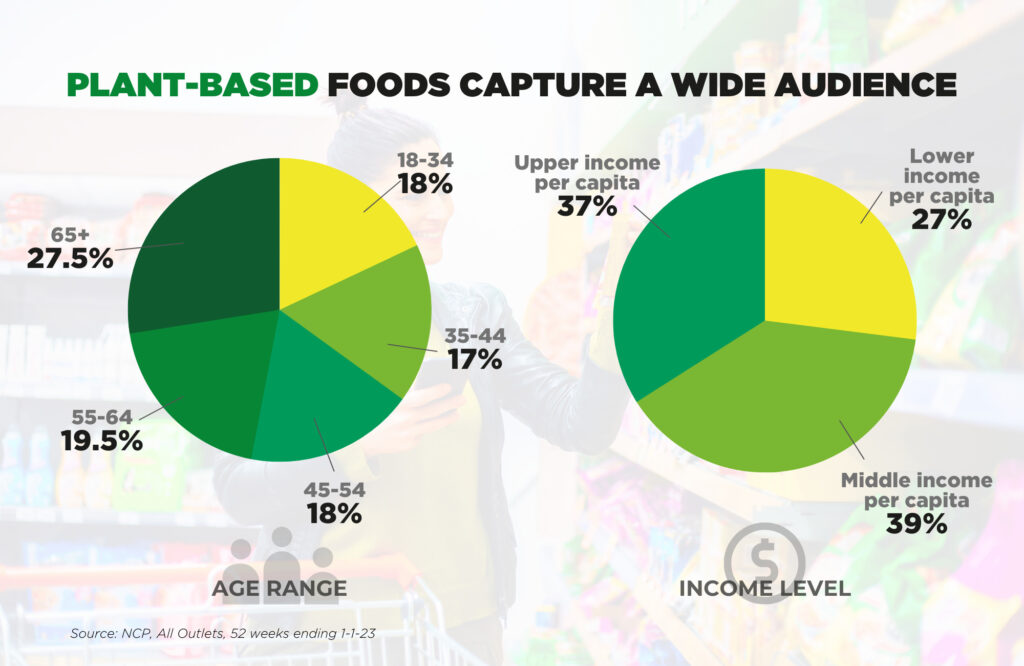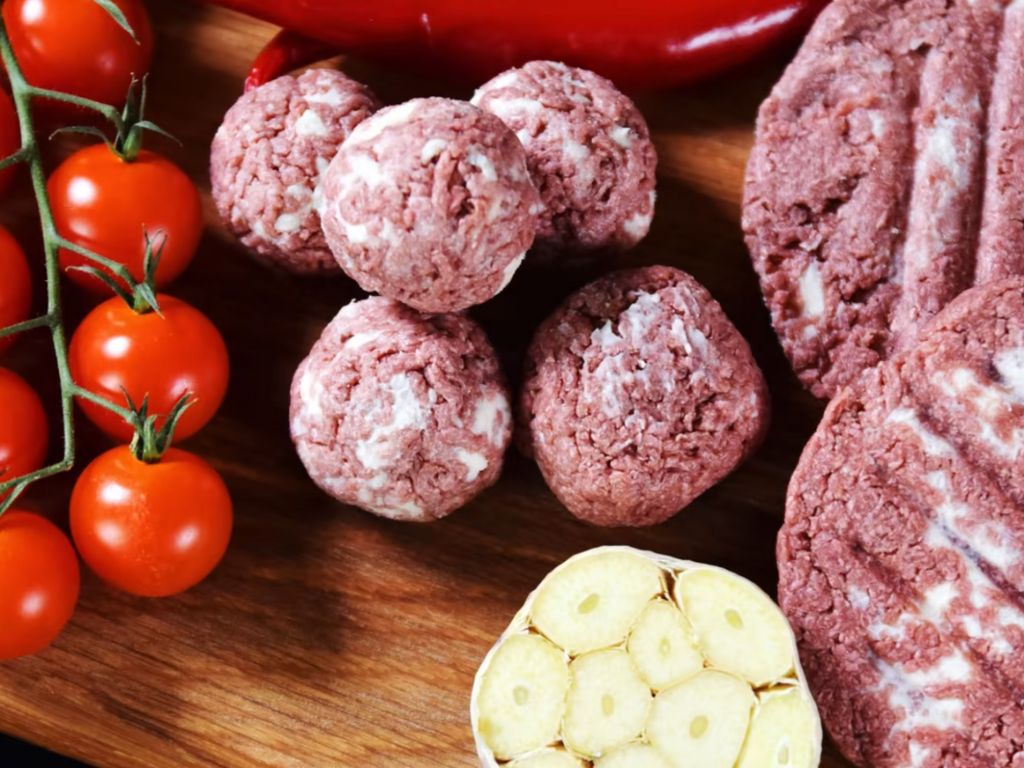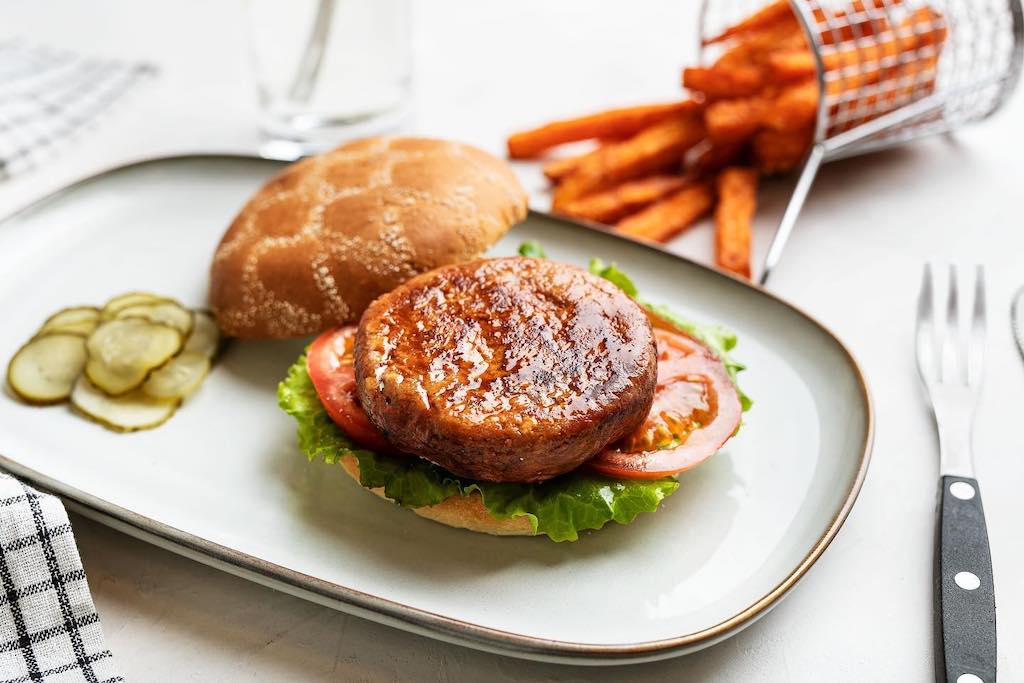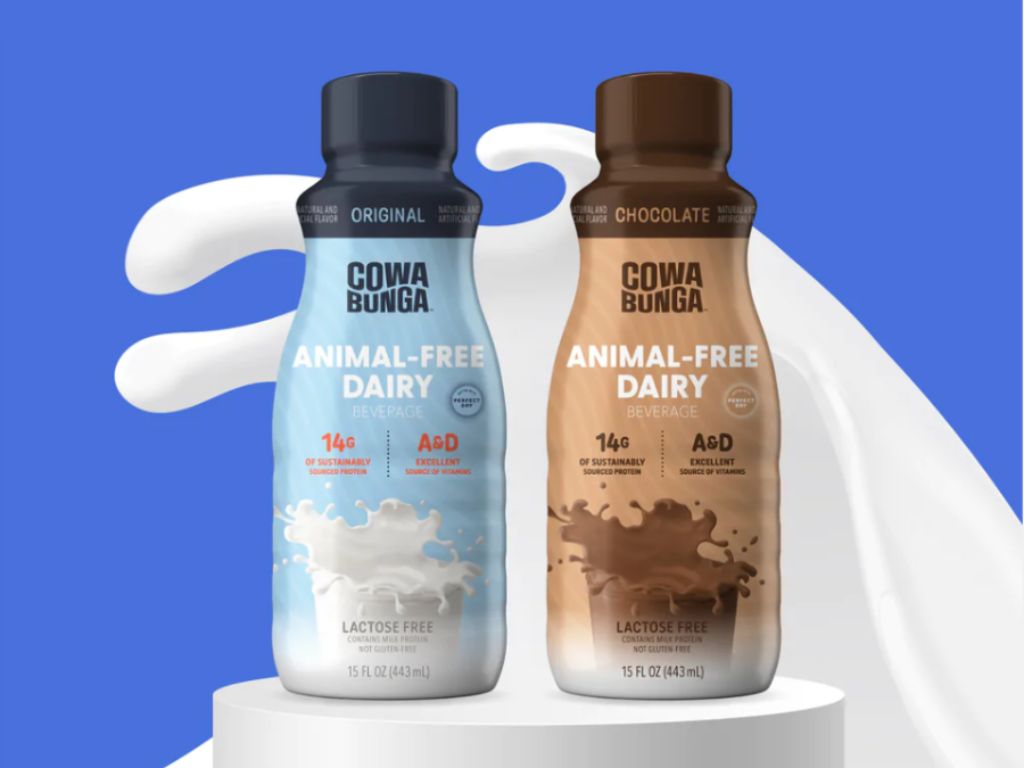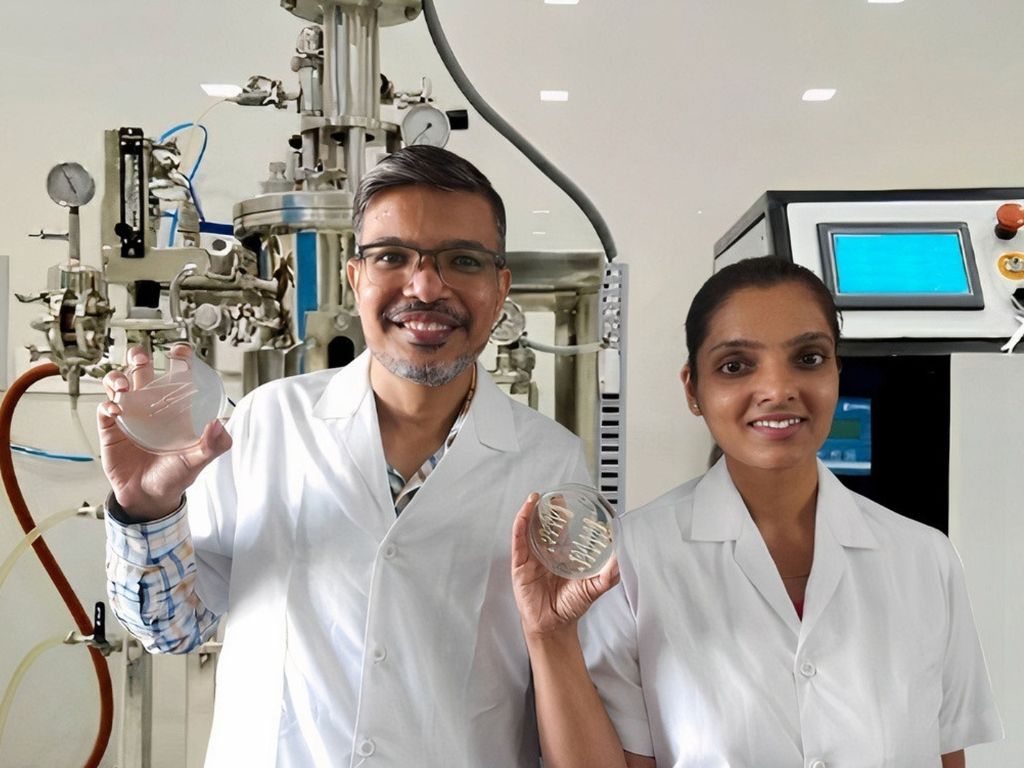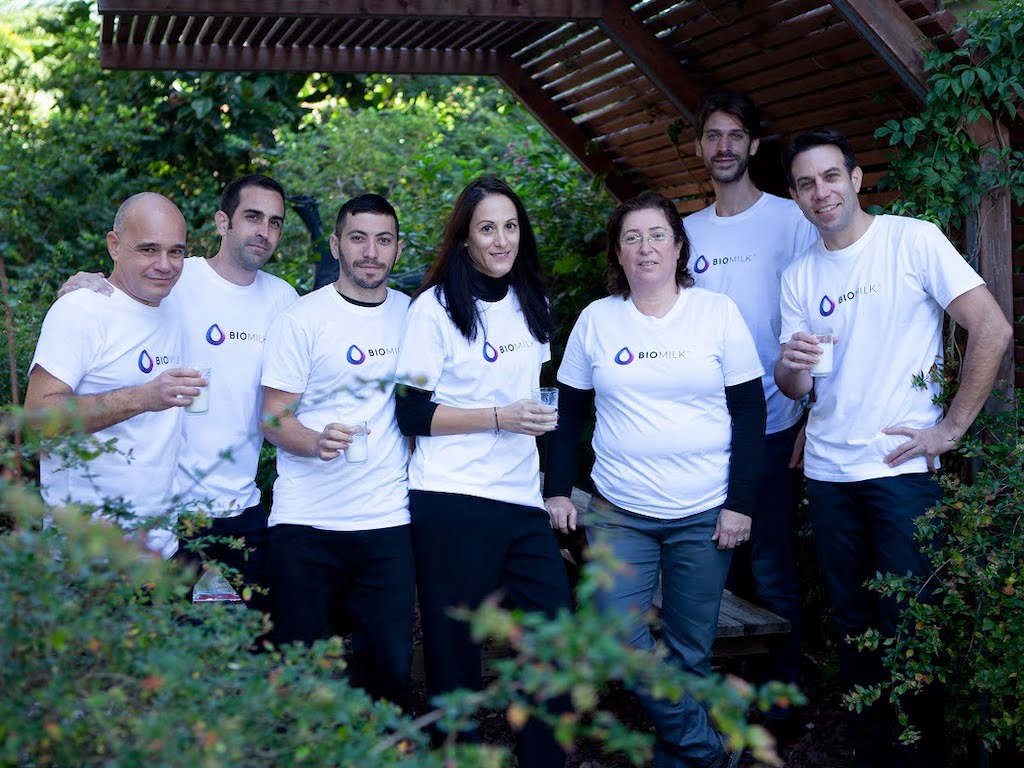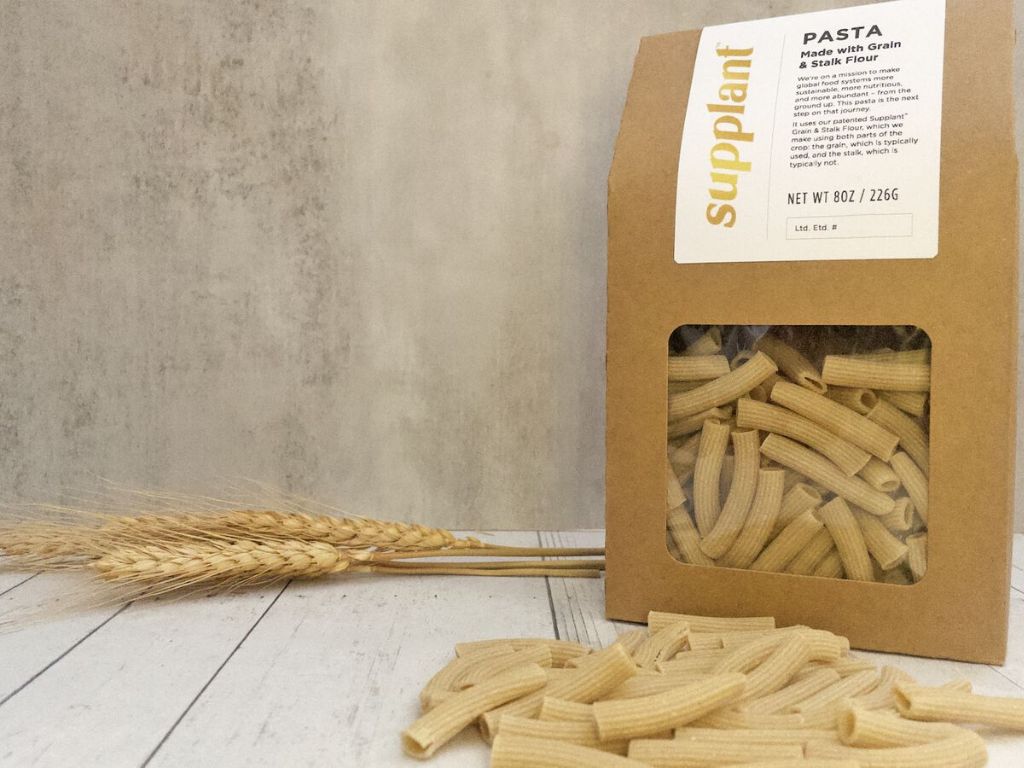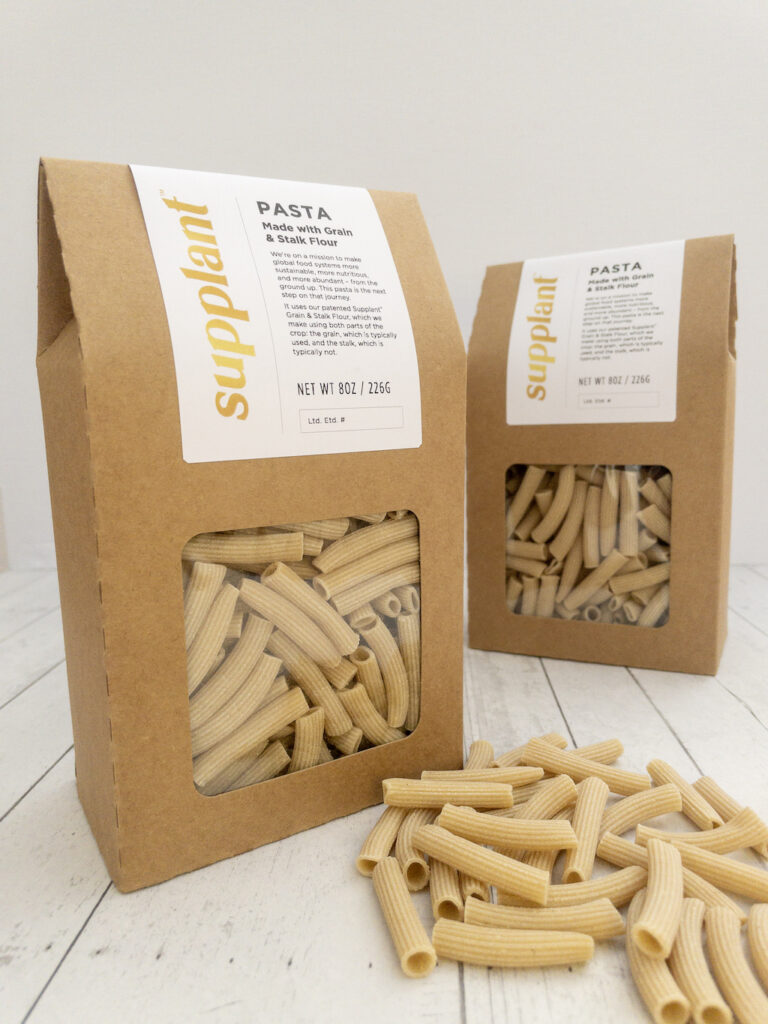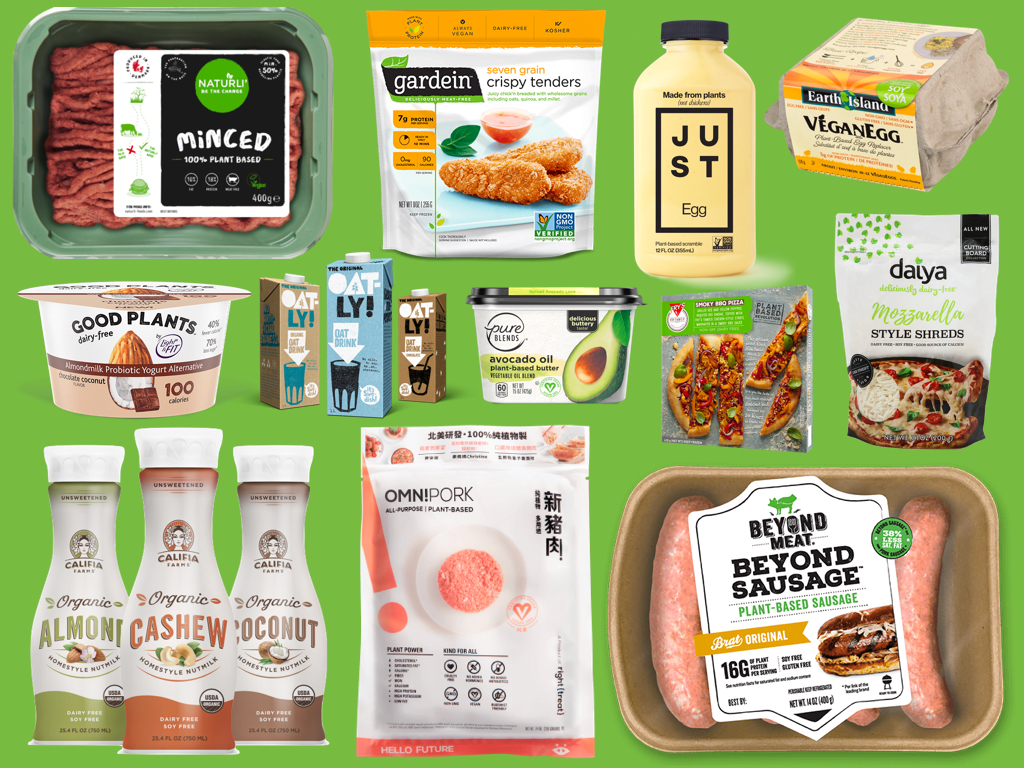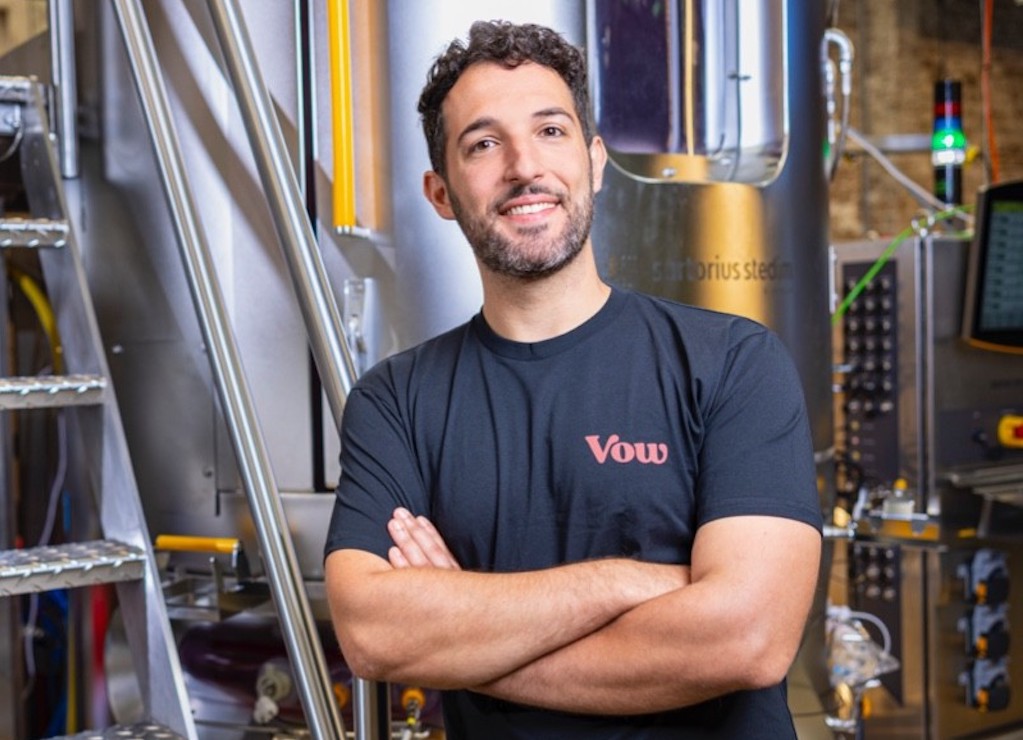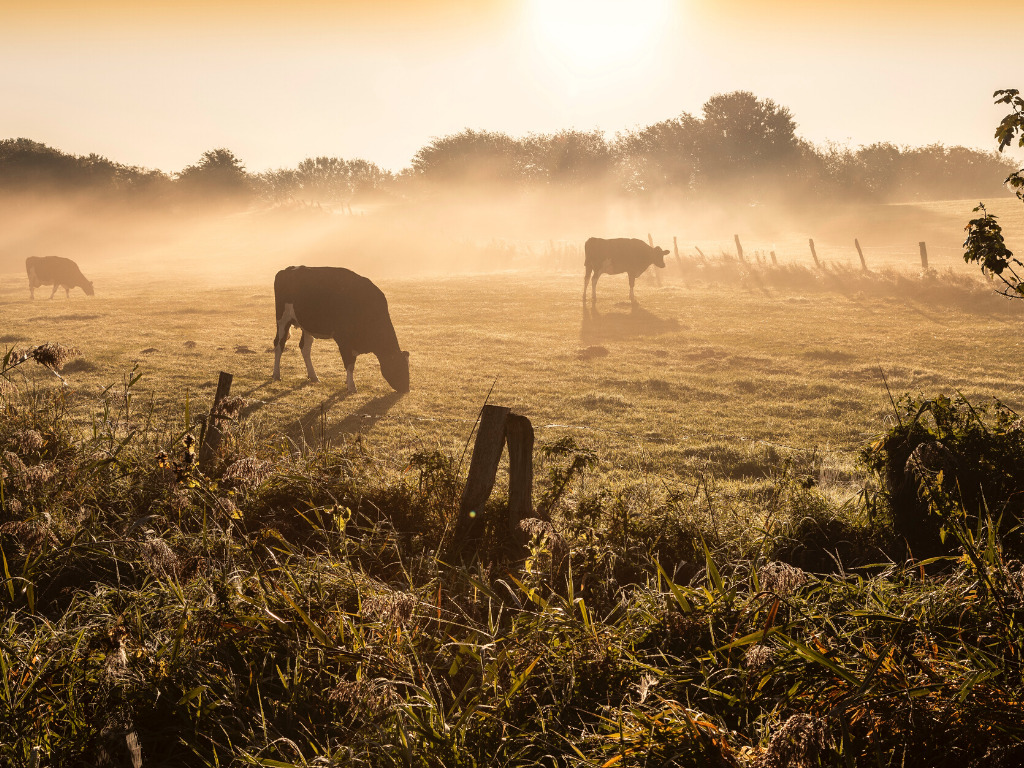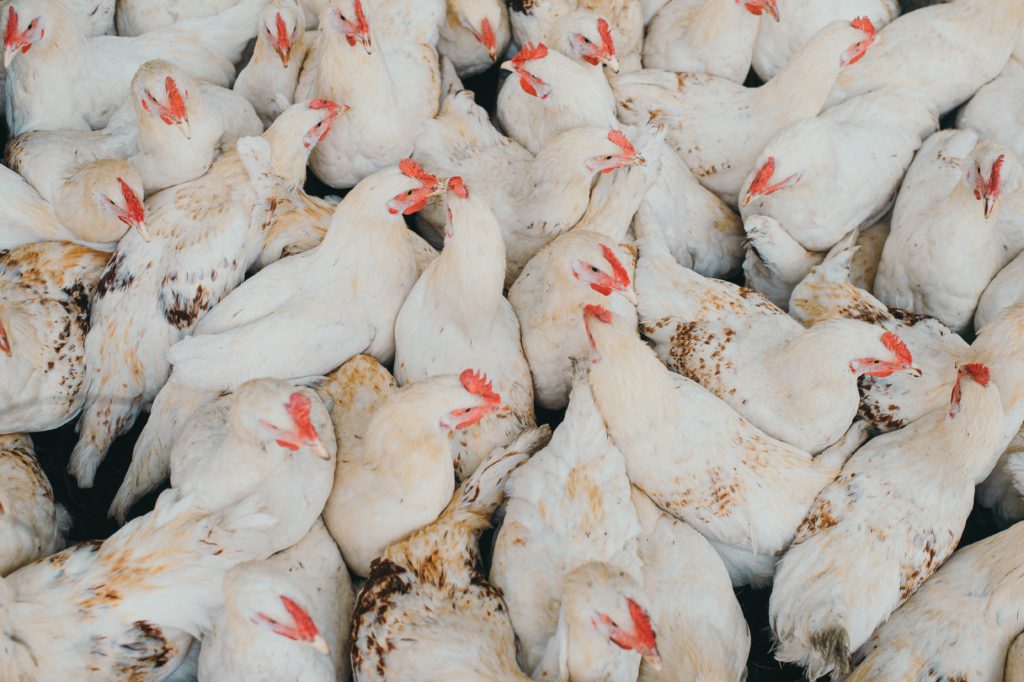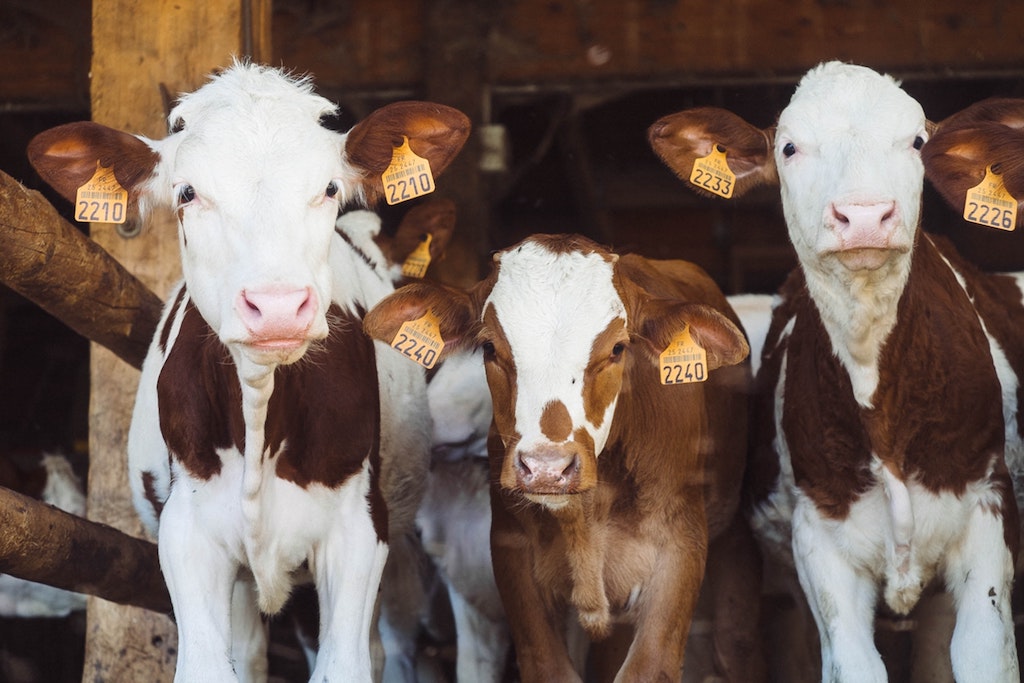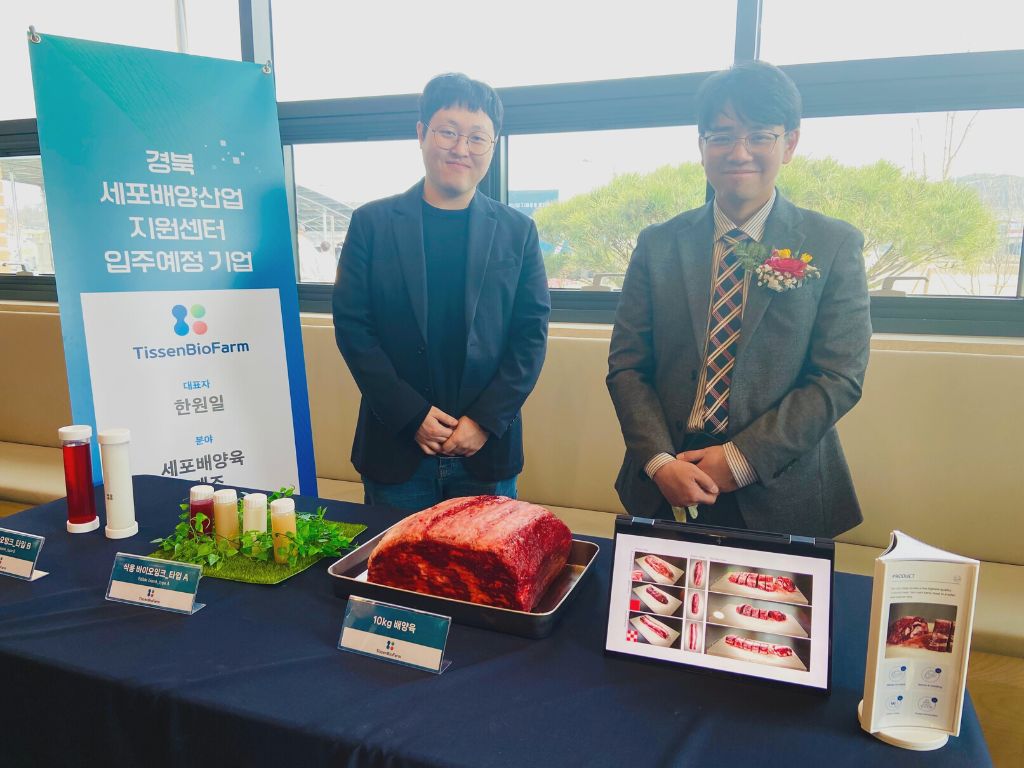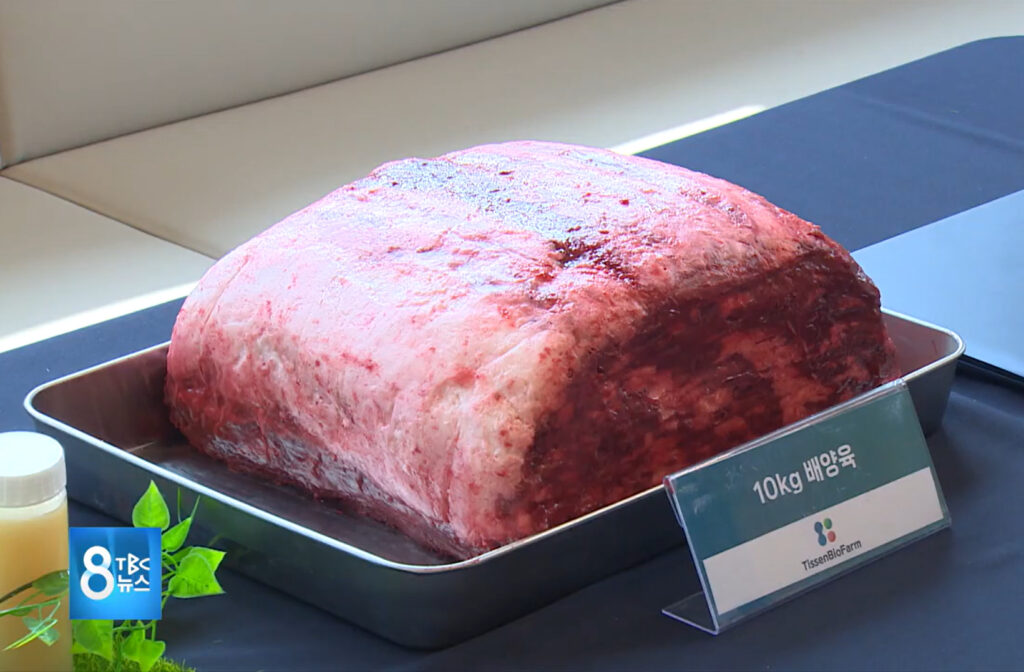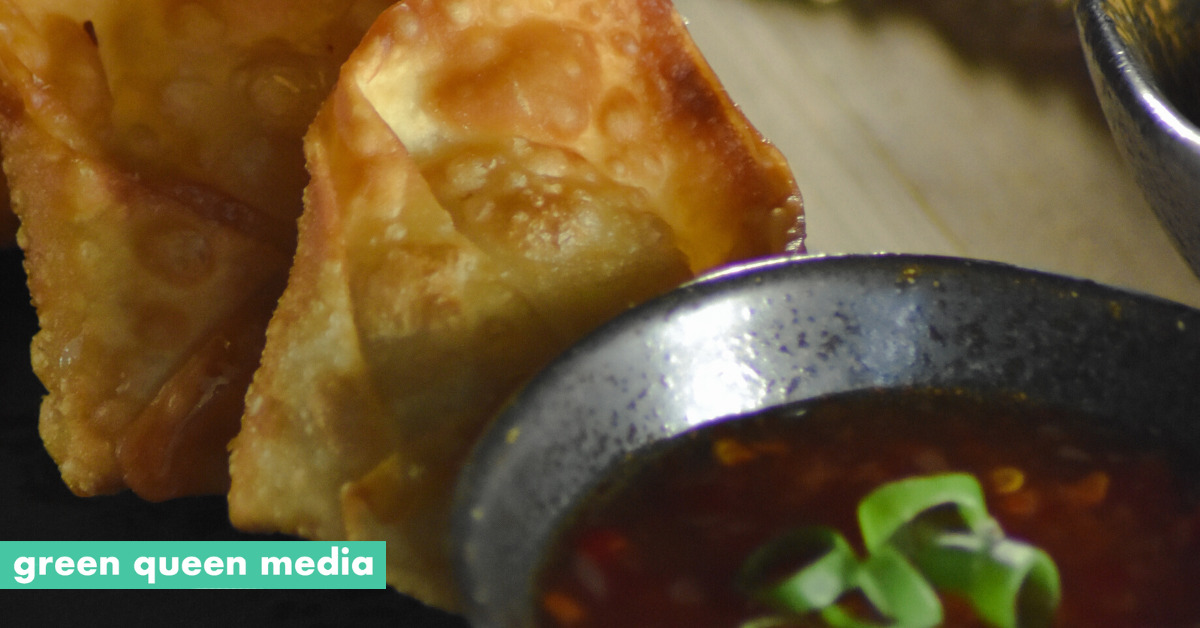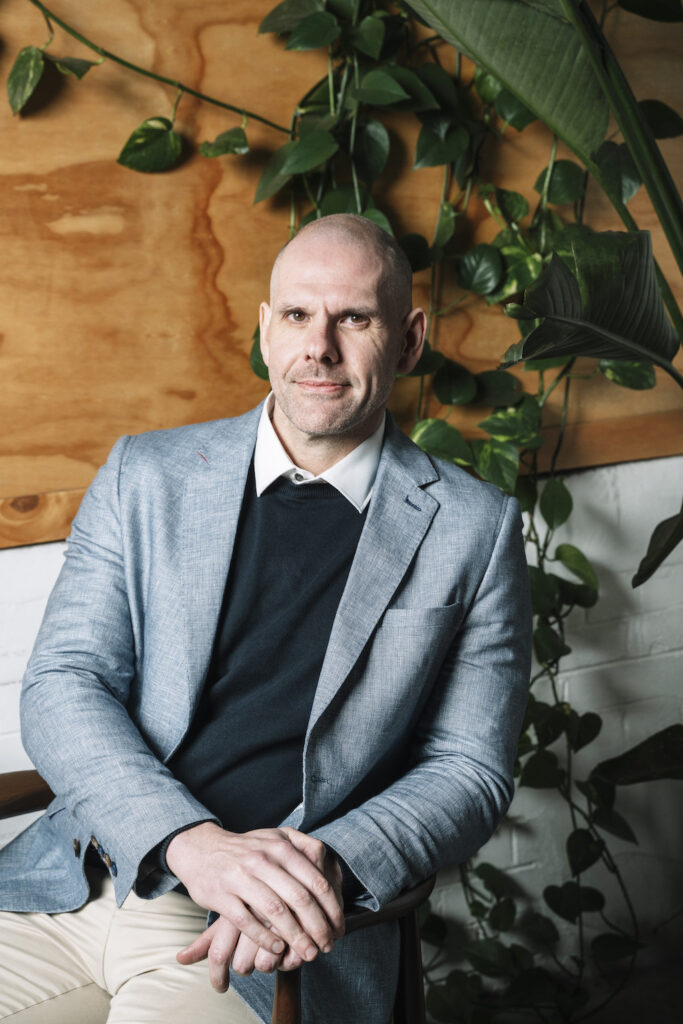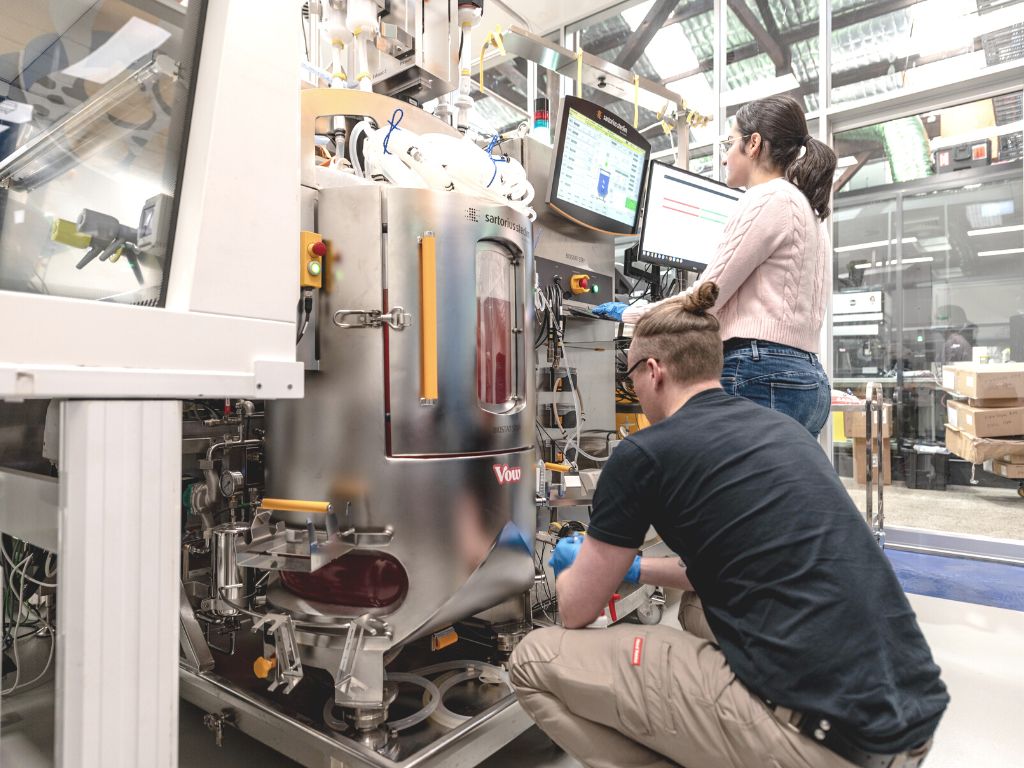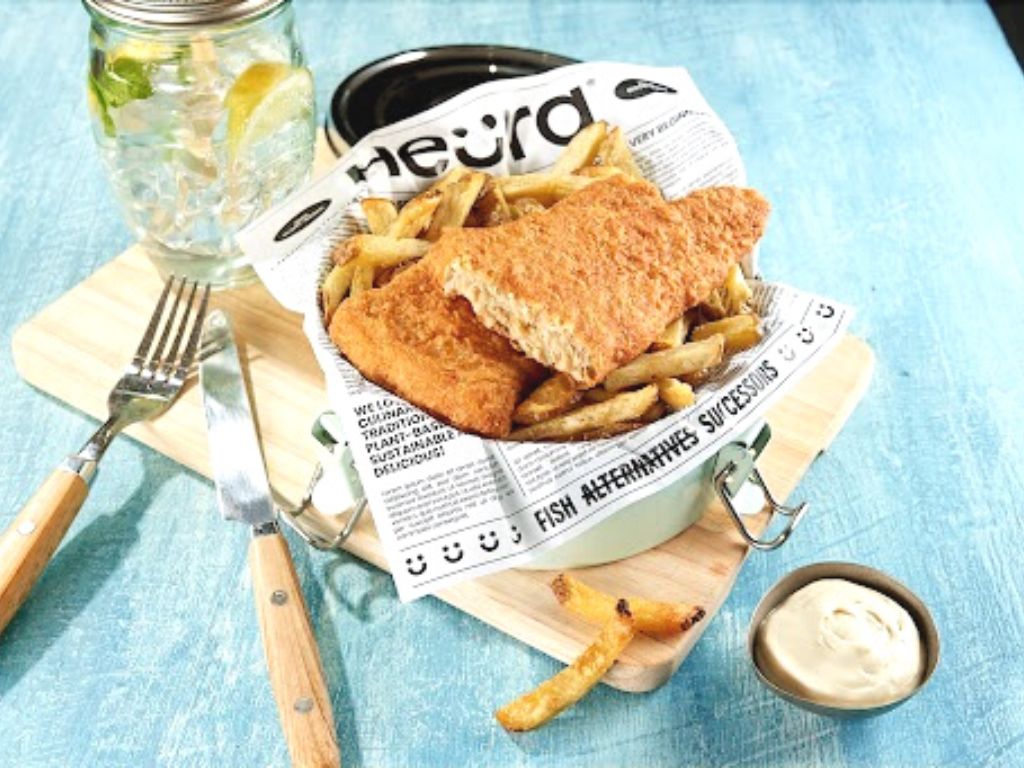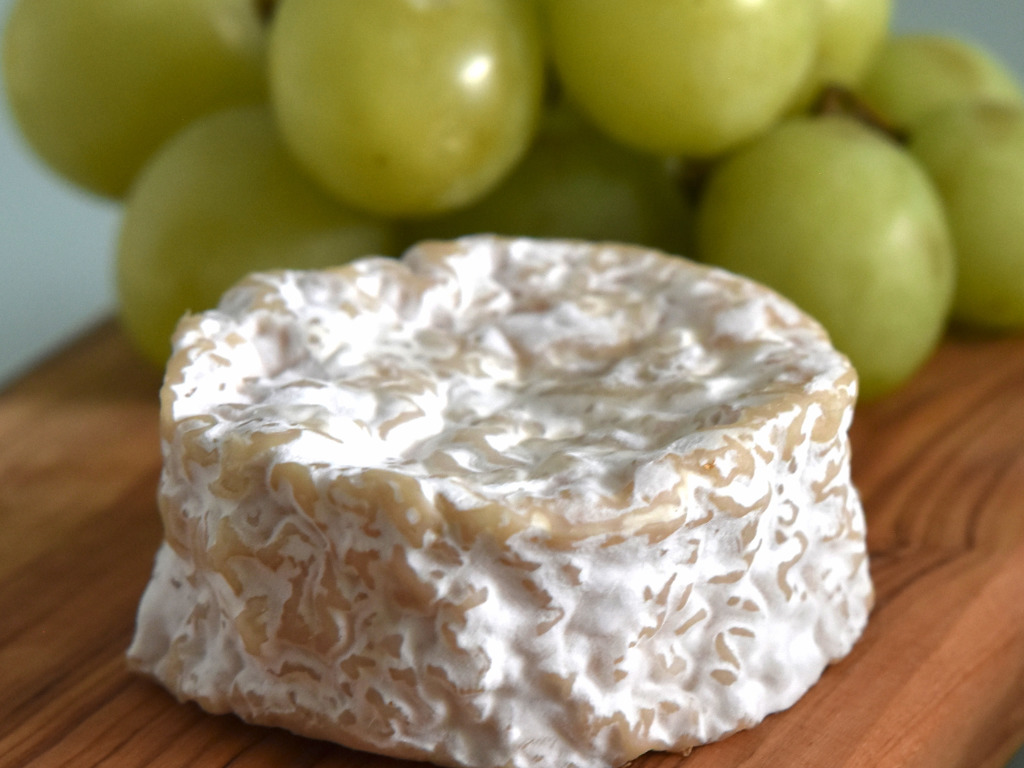
Alt protein brands are out there to save the world. But without creating mainstream desire they won’t win the hearts and stomachs crucial to making their visions a reality. Three emerging design patterns show us the way to cross the alt protein chasm into the mainstream.
A decade ago, Dr Mark Post, co-founder of what would become the cultivated meat company Mosa Meat, fried up the first “in vitro burger” on live TV from a studio in London. Since then, investors have poured $14 billion worth of funding into the alternative protein space in order to find new ways to create animal-like foods and a lot has changed.
Advances in science across plant-based, fermented and cultivated subsectors of the broader alternative protein space have given consumers some seriously impressive products, many of which cook, taste, smell and look like their animal-derived counterparts. We’ve got supermarkets displaying an array of plant-based brands milking every imaginable nut and legume. We’ve got ice cream and cream cheese made with dairy proteins from precision fermentation. We’ve even got cultivated chicken for sale to the public on a small island on the equator (hello Singapore!). The progress the industry has made in the past few years has been nothing short of amazing.
So why aren’t more people choosing alt proteins when they want to eat meat, drink milk, or schmear their bagel? A big missing piece of the puzzle is desire.
Why desire is hard
Even in the most progressive regions of the world, the market share of alternative meats is stuck in the low single digits. Alternative dairy, which is considered the most successful of all the plant-based food categories, is still only reaching the low teens. That’s because building mainstream desire for new foods is hard.
Fundamentally, desire is hard because it’s not just an engineering problem. Desire is a multi-pronged cultural problem, with deeply entrenched beliefs central to people’s identities. If you tell a group of Italians someone is trying to replicate their prosciutto and burrata in a lab, you get angry marches in the streets. Desire is a behavioural problem, with the double hurdles of trial and repeat. If a startup rushes a mediocre product out to market it faces a significant risk that consumers will not give it a second chance. Desire is an emotional problem, with hot buttons that can trigger a herd mentality. A simplistic headline amplified by today’s media echo chamber can create a negative halo or backlash around the whole category. There is no single equation or formula that leads to desire.
Desire is also hard because alt-protein brands are outgunned when it comes to marketing spend. In the past decade alone, Unilever, a single conventional food company, spent $103 billion on marketing alone – think enticing packaging, expensive billboards, and well-designed shelf wobblers – seven times more than the entirety of all alt protein investments including product development and factories.
Or consider US beef. US cattle producers and importers are legally bound to pay a levy of $1 for every live animal sold, which in turn funds the Cattlemen’s Beef Promotion and Research Board, an organization that runs the country’s Beef Checkoff program, a national marketing and research program designed to increase the demand for beef at home and abroad. The contributions give the program an annual budget of close to $40 million to spend on marketing, including sophisticated disinformation campaigns. No such alt protein checkoff exists.
Design as a strategic point of leverage
Fortunately, we have a powerful tool in our arsenal that can help us cut through the barriers and outsmart vs. simply outspend the established order. In our hyper-visual culture where the phone always eats first, we can use strategically crafted design to connect with consumers on a more visceral level and help drive desire.
To better understand what works and what doesn’t, we examined the design codes used by the top fifty B2C alt protein brands from across the plant-based, fermented and cultivated segments of the industry. Design codes are simply conventions that are used to communicate meaning. They can include colors, brand names, logos, imagery, or the tonality of marketing copy.
One specific tone of green can bestow crowns onto eco-royalty, while another can officially be the world’s ugliest color, so repulsive that regulators use it to stop people smoking. Brand names can be AGGRESSIVELY CAPITALISED or approachably set in friendly lowercase. Imagery can portray cows on idyllic grassy pastures or simply mouthwatering food porn. You get the point.
What we found are eight distinct design codes across the alt protein category. A good way to understand them is by grouping them into three buckets. Brands using residual codes date back to the origins of the category and haven’t evolved with the times. Dominant codes are used by the bulk of the brands shaping the category today. More recently, a new generation of brands are using emerging codes that show us the future of the category. Let’s examine each one of them in turn.
Residual design codes: the traditional approach
In all the excitement around the latest precision fermentation technique or cultivated growth medium, it’s easy to forget that the OGs of alt protein date back to the 1980s. Many of them are unfortunately still stuck there design-wise.

These are the veggie burgers of the past that many of us have tried and written off a long time ago. Their design language lacks desire and doesn’t give today’s consumers a reason to re-evaluate them. Photoshopped milk splashes and airline-food-style photography simply don’t cut it anymore.
Dominant design codes: driving today’s conversation
In the present-day alt-protein world, we found that four distinct brand design narratives dominate:

Beyond Preachy brands take the Silicon Valley 101 playbook and promise to unseat obsolete technology (animals) and do well by doing good. In their earnestness, however, they’re letting judgment and preachiness get in the way of desire. Do normal people want to think about land use and greenhouse gases over breakfast? Probably not.

Turning up the volume to 11, Shock & Awe brands define themselves by what they’re up against instead of what they stand for. Impossible quests are embarked upon, blood is splattered on the walls, and the calves keep their milk. These brands get our attention, but do they build any kind of long-lasting relationship with the consumer? The shock of the new tends to wear off.
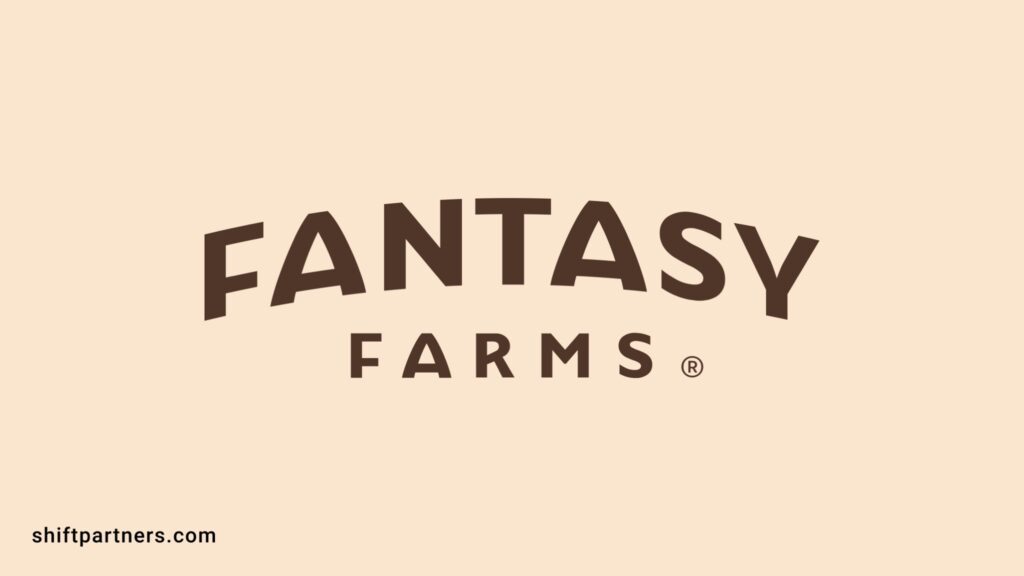
A different, softer tack is taken by Fantasy Farms brands. Their names and their soothing pastel colour palettes want us to associate their products with the farm-to-table ethos – except there is no farm. When you click on where to find us on the Califia Farms website, you’re guided to a WeWork in downtown LA. Time will tell whether people see through this, and whether they care.

Finally, Future Cool brands don’t try to hide the lab, they embrace it. They celebrate the future and try to make it cool. Their swag screams “LAB TO TABLE” in, what else, Helvetica font. This minimal approach certainly feels premium, but is it too cold to tap into the desire inherent in food?
The alt protein chasm
At this point it’s useful to remind ourselves of a 30-year old theory of how people adopt innovations. In Crossing the Chasm, his seminal book on innovation, author Geoffrey Moore describes how early visionaries have very different expectations of products than mainstream pragmatists, and how fundamentally different techniques need to be used to cross the chasm between the two. This is exactly where alt protein is today.
Yes, improvements are needed when it comes to the taste and texture of the products on shelves today. And yes, prices need to come down as we increase scale. But even the many benefits already on offer today aren’t consistently connecting with consumers, and that’s because the residual and dominant design codes we’re using have gotten us to the early market, but they haven’t gotten us over the chasm.
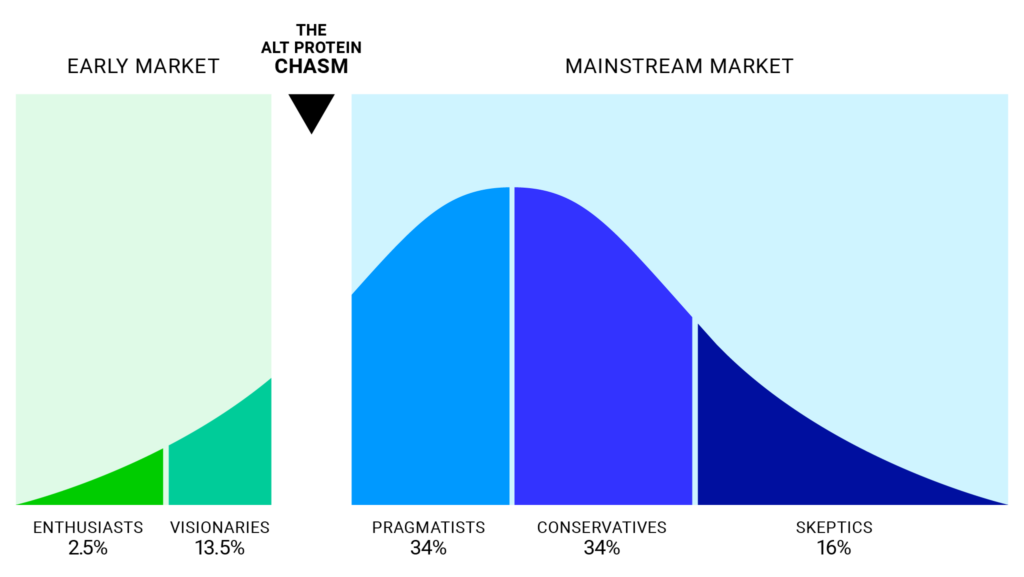
Emerging design codes: showing the way forward
These three design codes are where things get interesting. The brands using them are starting to show us how to cross the chasm and build mainstream desire with a more mass consumer.

Embrace the Core brands refuse to be confined to a niche and are looking to normalize the alternative. They celebrate what people love about the category without being preachy. Doubling down on appetite appeal, they make alt protein fun, approachable, and ultimately a better version of the status quo.

Loud & Proud brands are a more confident evolution of the dominant Shock & Awe code. The revolutionary flags and clenched fists are still there but these newer brands don’t need to put others down to make themselves stand out. A liberal sprinkling of attitude helps them, and their consumers, make a statement.

Last but not least, Retro Comfort brands are a more sophisticated evolution of Fantasy Farms. They use the almost subliminal familiarity of the past to make alt protein seem non-threatening and wholesome. What could go wrong with a smiling sun made of mycelium?
So where do we go from here?
To have a chance of moving the needle on the global food system we must stop preaching to the converted. Using some of the emerging design codes we’ve identified, and building them into more brands can help. We should push them, test them, refine them, and evolve them. As we do, here are five things to focus on:
- Go for the persuadables. While every alt protein brand should have its own segmentation and view of the market, they’re likely to find there’s a small portion of consumers who are super engaged, a similar portion of rejectors who will simply never care, and a big majority of persuadable people in the middle. Target them, don’t settle for a narrow niche.
- Understand the culture. Frame your brands with a deep understanding of local food cultures. A schnitzel is different from shawarma, is different from Buffalo wings, is different from karaage – even though all of these dishes can be made from plant-based chicken.
- Be familiar, with a twist. Don’t obsess over always being 100% new and different. Remember that apps on the iPhone looked like they were made out of wood and green felt for the first six generations of the device. Use familiarity to your advantage as you go mainstream.
- Tesla the sustainability. Don’t lead with sustainability. A Tesla product page talks about getting from 0-60 in 3.1 seconds, having a 333-mile range, and having a 5-star safety rating, not sustainability. It’s a better car that just happens to be electric. Present a better protein that just happens to be sustainable.
- Show what’s in it for me. Always come back to what’s in it for the consumer. Don’t just talk about the nutritional content of your protein, but have Chef David Chang explain how it cooks better because it can be grated on a salad, put in a sandwich, basted in butter, or roasted in an oven.
Let’s rewind back to that first in-vitro burger at the start of the article. It was eventually revealed that one of the people funding the project was none other than Sergey Brin, the co-founder of Google. He went on to describe three potential scenarios for the future of food. “One is that we’ll all become vegetarian,” he said. “I don’t think that’s really likely. The second is, we ignore the issues — and that leads to continued environmental harm. And the third option is, we do something new.”
Let’s do something new folks. And let’s also use the power of design to make the change we need irresistible.
All images and graphics courtesy of The Shift & Co.
The post Alt Protein’s Design Language: Creating Mainstream Desire To Drive Food System Change first appeared on Green Queen.
The post Alt Protein’s Design Language: Creating Mainstream Desire To Drive Food System Change appeared first on Green Queen.
This post was originally published on Green Queen.
